
SEADS 2021
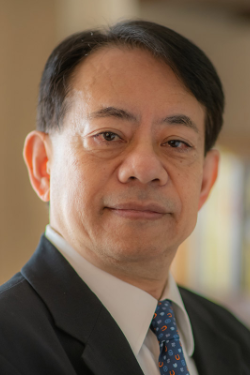
Masatsugu Asakawa is the President of the Asian Development Bank (ADB) and the Chairperson of ADB’s Board of Directors. He was elected President by ADB’s Board of Governors and assumed office on 17 January 2020.
He previously served as Special Advisor to Japan’s Prime Minister and Minister of Finance, and has a close-to-four decades’ career at the Ministry of Finance with diverse professional experiences that cut across both domestic and international fronts.
In the immediate aftermath of the Global Financial Crisis, Mr. Asakawa, in his capacity as Executive Assistant to Prime Minister Taro Aso, took part in the first G20 Leaders’ Summit Meeting in November 2008. He was instrumental in orchestrating a globally coordinated financial package to abate the financial crisis, including a $100-billion loan from Japan to the IMF. Then in 2016, in his capacity as Vice Minister of Finance for International Affairs, he took on a leading role for the G7 Finance Ministers and Central Bank Governors meeting in Sendai under the Japanese presidency, where sustainable and inclusive development agenda was extensively discussed.
Most recently, he served as Finance Deputy for the G20 meetings under the Japanese Presidency, playing a pivotal role for the success of the G20 Osaka Summit as well as the G20 Finance Ministers and Central Bank Governors meeting in Fukuoka. Some of his outstanding achievements in Osaka include endorsement by the G20 Leaders of the “G20 Principles for Quality Infrastructure Investment” and the “G20 Shared Understanding on the Importance of UHC Financing in Developing Countries”. Before all this, he had occupied various prominent positions within the Finance Ministry, including director positions in charge of development policy issues, foreign exchange markets and international tax policy.
Mr. Asakawa’s professional experience extends beyond the realms of the Japanese Government. Most notably, he served as Chief Advisor to ADB President Kimimasa Tarumizu between 1989 and 1992, during which he spearheaded the creation of a new office that focuses on strategic planning. Also, he had frequent engagement with the OECD in such positions as Chair for Committee on Fiscal Affairs (2011–2016). Furthermore, he was a senior staff at the Fiscal Affairs Department of IMF (1996–2000).
In the meantime, he gave lectures as Visiting Professor at the Graduate School of Economic Science, Saitama University (2006–2009), and at the Graduate School of Arts and Sciences, University of Tokyo (2012–2015).
Mr. Asakawa obtained his BA from University of Tokyo (Economics Faculty) in 1981, and MPA from Princeton University, USA, in 1985.
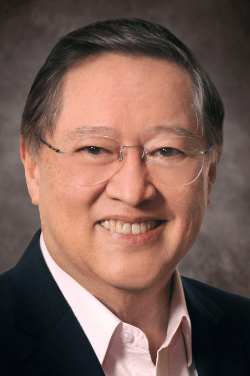
Carlos G. Dominguez is the Secretary of the Department of Finance of the Philippines and also an Asian Development Bank Governor.
Mr. Dominguez has over 40 years of experience and an outstanding track record of achievements at the helm of various organizations in the public and private sectors.
His expertise was borne out of his experiences as a shareholder, board chairman and a member of over a dozen corporations across power, agriculture, mining, banking, hospitality, real estate, and investment.
Mr. Dominguez was appointed as Cabinet Secretary thrice: as Secretary of Environment and Natural Resources (1986–1987), Secretary of Agriculture (1987–1989), and currently as Secretary of Finance since 2016.
Under his leadership, the Department of Finance was able to draft and introduce to Congress the first of a series of the Duterte administration’s proposed tax reform packages known as the Tax Reform for Acceleration and Inclusion (TRAIN) Act less than 90 days from the time he assumed the Cabinet portfolio in July 2016. President Rodrigo Roa Duterte signed into law the TRAIN Act on 19 December 2017. This was followed by other successes in the legislature—such as the passage of the Tax Amnesty Act, the Tobacco Tax Reform Law, and a new Sin Tax Reform Law, which raised excise taxes on alcohol and electronic cigarettes.
On his watch, the Philippines’ key revenue agencies—the Bureaus of Internal Revenue (BIR) and of Customs also continue to achieve strong revenue growth rates. It was also under his leadership that the BIR was able to secure its largest tax settlement ever—amounting to about $600 million—from a single taxpayer in Philippine history.
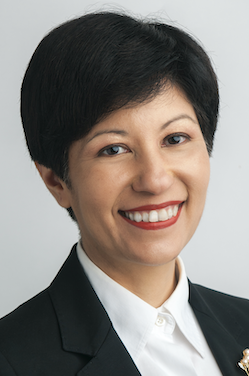
Indranee Thurai Rajah is a Minister in the Prime Minister’s Office of Singapore. She is also Second Minister for Finance and for National Development, as well as a Leader of the House for the 14th Parliament. She has been a Member of Parliament for the Tanjong Pagar Group Representation Constituency since 2001.
She was a practicing lawyer and a Senior Counsel before joining the government.
Under her law portfolio from 2012 to 2018, she co-chaired the Committees on Family Justice, the formation of the Singapore International Commercial Court, as well as the Committee to Strengthen Singapore as an International Centre for Debt Restructuring. She also co-chaired the Penal Code Review Committee whose recommendations led to major amendments of the Penal Code, including greater protection for women and the vulnerable.
In her first tour of the Education Ministry from 2012 to 2015, she led the Applied Study in Polytechnics and ITE Review (ASPIRE) Committee resulting in the setup of SkillsFuture, a national movement to align education with economic demand, career guidance, and lifelong learning. In her second stint from 2018 to 2020, Ms. Rajah chaired UPLIFT—“Uplifting Pupils in Life and Inspiring Families Taskforce"—an inter-agency team convened in 2018 to strengthen support for students from disadvantaged families.
Under her finance portfolio, Ms. Rajah co-chaired the Working Group on Legal and Accounting Services, a sub-committee of the 2016 Committee on the Future Economy, the recommendations of which are aimed at transforming the legal and accounting industries in Singapore and catalyzing the internationalization of such professional services. She oversees Infrastructure Asia, the Singapore government platform that connects infrastructure demand and supply in the region.
In the Prime Minister’s Office, Ms. Rajah oversees the National Population and Talent Division and assists Senior Minister Teo Chee Hean on population matters.
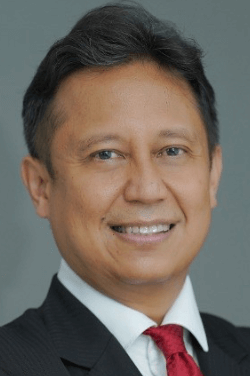
Budi Gunadi Sadikin is the Minister of Health of Indonesia, a position he assumed in December 2020.
Mr. Sadikin began his career in 1988 as Information Technology Officer at IBM's Asia-Pacific Headquarters in Tokyo. He worked at IBM until 1994, eventually becoming Manager of Systems Integration & Professional Services.
He then joined PT Bank Bali Tbk. and stayed until 1999. He held various managerial roles, including General Manager of Electronic Banking, Chief General Manager of the Jakarta Region, and Chief General Manager of Human Resources.
Mr. Sadikin then moved to ABN AMRO Bank Indonesia, where he stayed until 2004. He was eventually named Director of Consumer and Commercial Banking (Senior Vice-President) for ABN AMRO Bank Indonesia & Malaysia.
He then joined PT Bank Danamon Tbk. as Head of Consumer Banking (Executive Vice-President) and later Director of Adira Quantum Multi Finance.
In 2006, he joined Bank Mandiri Tbk. as Director of Micro & Retail Banking. He was named President Director in 2013 and stayed until March 2016.
Between 2016 and 2017, he served as Senior Advisor to the Minister of State-Owned Enterprises and was later appointed as the Chairman of PT Indonesia Asahan Aluminium (Persero).
Between September 2017 and November 2019, he served as the Group Chief Executive Officer of Mining Industry Holding Company, PT Indonesia Asahan Aluminium (Persero), comprised of PT Aneka Tambang Tbk., PT Bukit Asam Tbk., PT Timah Tbk., and PT Freeport Indonesia.
Mr. Sadikin then served as Vice Minister I of State-Owned Enterprises and was tasked to establish market-leading and globally competitive state-owned enterprises. In July 2020, he was appointed as head of the National Economic Recovery and Transformation Task Force amid the COVID-19 pandemic in Indonesia.
He holds various positions in professional organizations, including the Indonesian Bankers Association, Acquiring Business Executive Council of VISA Asia Pacific, SWIFT Asia-Pacific Advisory Group, and the Association of Indonesia FinTech Startup Companies.
Mr. Sadikin graduated in 1988 from Bandung Institute of Technology with a degree in nuclear physics. He received his certification as a Chartered Financial Consultant and Chartered Life Underwriter from the Singapore Insurance Institute in 2004.
He also participated in executive education programs, including Strategic Thinking and Management for Competitive Advantage Program, Wharton University of Pennsylvania, Philadelphia, 2008; Executive Training Global Strategic Management, Harvard Business School, 2009; Executive Education Venture Capital Executive Program, University of California, Berkeley, 2010; Executive Education Interpersonal Dynamics for High-Performance Executives, Stanford Graduate School of Business, 2011; and Executive Education Risk Management in Banking, INSEAD, 2012.
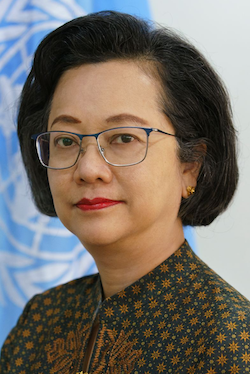
Armida Salsiah Alisjahbana is the United Nations Under-Secretary General and Executive Secretary of the United Nations Economic and Social Commission for Asia and the Pacific (UNESCAP).
Prior to joining UNESCAP, Ms. Alisjahbana was Professor of Economics at Universitas Padjadjaran in Bandung, Indonesia, a position she assumed in 2005. She joined Universitas Padjadjaran as a lecturer in 1988. Since 2016, she has served as Director for the Center for Sustainable Development Goals Studies at Universitas Padjadjaran and Vice-Chair of the Indonesian Academy of Sciences.
She also serves on the Governing Board of the Economic Research Institute for ASEAN and East Asia (ERIA), and member of the Indonesian Academy of Sciences (Akademi Ilmu Pengetahuan Indonesia–AIPI), the Forum of Statistics Community (Forum Masyarakat Statistik or Advisory Council of the Indonesian Statistics), the International Advisory Board of the Bulletin of Indonesian Economic Studies, and Council Member of the Regional Science Association International (RSAI).
From 2009 to 2014, she was Minister of National Development Planning and the Head of the National Development Planning Agency (BAPPENAS), Indonesia. She served as Co-chair of the Global Partnership for Effective Development Cooperation from 2012 to 2014. From 2009 to 2014, she was Alternate Governor of the World Bank and Alternate Governor of the Asian Development Bank, representing Indonesia. In 2016, she was a member of the High Level Independent Team of Advisors to support the ECOSOC Dialogue on the longer term positioning of the United Nations Development System in the context of the 2030 Agenda on Sustainable Development.
Ms. Alisjahbana has been involved in various research projects and consultancies to the United Nations University/Institute for Advanced Study in Tokyo, the World Bank, the Asian Development Bank (ADB), the Department of Foreign Affairs and Trade (DFAT), Australia, the Australian Agency for International Development (AusAID), the European Commission, and the International Labor Organization (ILO).
Ms. Alisjahbana earned her Bachelor degree in Economics and Development Studies from Universitas Indonesia, Indonesia, a master's degree in economics from Northwestern University, US and a PhD in economics from University of Washington, US. She was awarded the Mahaputra Adipradana Order (Bintang Mahaputra Adipradana) from the Republic of Indonesia, honorary brevet from the Indonesian Navy, and honorary flight wing from the Indonesian Air Force.
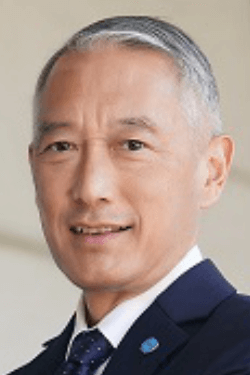
Jerome H. Kim, M.D., is the Director General of the International Vaccine Institute (IVI) and an Adjunct Professor at the Graduate School of Public Health, Yonsei University Seoul, Republic of Korea.
He served as the Principal Deputy at the U.S. Military HIV Research Program as well as the Chief of the Laboratory of Molecular Virology and Pathogenesis and the Project Manager of the HIV Vaccines Project Management Office of the U.S. Army Medical Materiel Development Activity.
Dr. Kim was a Professor at the Department of Medicine at the Uniformed Services University of the Health Sciences. He led the Army’s Phase III HIV vaccine trial (RV144), the first demonstration that an HIV vaccine could protect against infection, as well as subsequent studies that identified laboratory correlates of protection and sequence changes in breakthrough HIV infections after vaccination.
Dr. Kim graduated from the Yale University School of Medicine in 1984 and completed his training in Internal Medicine and Infectious Diseases at Duke University Medical Center.
Dr. Kim has authored over 250 publications.
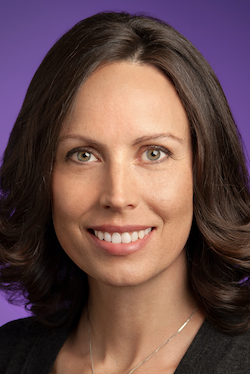
Jacquelline Fuller leads Google.org, a data-driven, human-focused philanthropy powered by Google.
Jacquelline joined Google in 2007 and manages a global team overseeing Google’s philanthropic work, product donations, and employee giving and volunteering. Her team invests over $200 million a year to support innovative nonprofits using technology to tackle complex global challenges and create more opportunities for everyone.
Prior to Google, Jacquelline served as Deputy Director of Global Health at the Bill & Melinda Gates Foundation. While at the Gates Foundation, Jacquelline and her family moved to Delhi, India where she launched a $300-million health initiative.
Jacquelline also served as a speechwriter to U.S. Secretary of Health and Human Services Louis Sullivan. She received her bachelor's degree in political science from University of California, Los Angeles and a master’s degree in public policy from the Kennedy School at Harvard University.
She serves on the board of GiveDirectly, a nonprofit organization based in Africa that helps poor families.
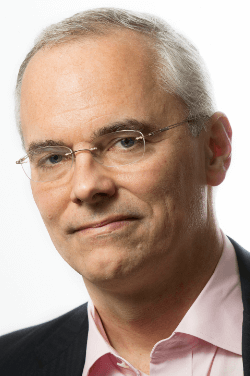
Richard J. Hatchett, MD, is the Chief Executive Officer of the Coalition for Epidemic Preparedness Innovations (CEPI), a partnership of public, private, philanthropic and civil organizations that supports the development of vaccines against high priority public health threats and technology platforms to allow the rapid development of vaccines against emerging infectious diseases such as COVID-19.
Dr. Hatchett was previously the acting Director of the U.S. Biomedical Advanced Research and Development Authority and served as Director of Medical Preparedness Policy on the Homeland and National Security Councils under Presidents Bush and Obama, respectively.
He received his medical degree from Vanderbilt and completed clinical training in internal medicine and medical oncology at Cornell and Duke.
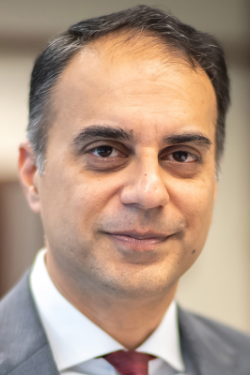
Ahmed M. Saeed is the Vice-President (Operations 2) of the Asian Development Bank (ADB). He was appointed by ADB on 26 February 2019. Mr. Saeed is responsible for operations in the East Asia Department, the Southeast Asia Department, and the Pacific Department.
Mr. Saeed was formerly the Managing Director and Head of Public Sector for Middle East, North Africa, and Pakistan at JP Morgan Chase in Dubai, UAE. He previously worked in the US Department of the Treasury as Deputy Assistant Secretary for the Middle East and Africa and as White House Fellow and Advisor to the Secretary of the Treasury. He has experience working with many governments, central banks, finance ministries, and sovereign wealth funds on a broad range of economic and financial issues. Mr. Saeed holds a Doctor of Jurisprudence from the University of Chicago Law School and a Master of Business Administration in Finance from the University of Chicago Graduate School of Business. He is a member of the Council on Foreign Relations.
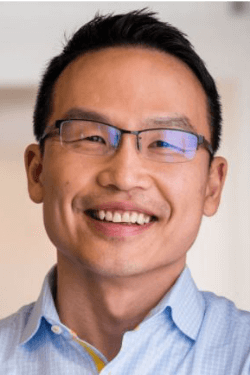
Ming Maa is the Group President of Grab, responsible for corporate development activities, including strategic partnerships and investment opportunities, managing the company's overall capital structure, and other corporate activities.
Ming has over a decade of finance and investment experience across the United States and Asia. He joined Grab from SoftBank Group Corp., a leading global technology company and one of Grab's key strategic investors. He helped oversee SoftBank's investments in leading companies in the ride-sharing and e-commerce industries, including SoftBank's April 2015 Series D investment in Grab and additional Series F investment in September 2016.
Prior to joining SoftBank, Ming was a Principal at Ancora Capital Management Pte. Ltd. based in Jakarta. Prior to Ancora, between 2000 and 2012, Ming was Vice-President in Goldman Sachs' Merchant Banking Division, the firm's global private equity group, and was based in Tokyo, New York, and San Francisco. At Goldman Sachs, he managed investments across a wide spectrum of industries and served on the boards of several technology and media companies.
Ming received his bachelor of science and master of science degrees from the Massachusetts Institute of Technology.
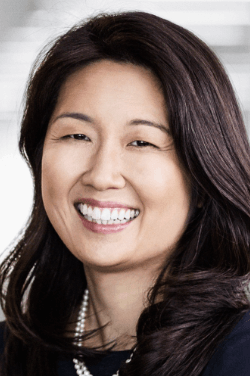
Audrey Choi is Morgan Stanley’s Chief Marketing Officer and the firm’s first Chief Sustainability Officer. She serves on the firm’s Management Committee and is the founding CEO of Morgan Stanley’s industry-leading Institute for Sustainable Investing.
As Chief Sustainability Officer, Audrey oversees Morgan Stanley’s global efforts to promote sustainability through the capital markets. Over the last decade, she has been a pioneer in bringing sustainable investing into the mainstream. As Chief Marketing Officer, Audrey is responsible for stewarding the global brand to reflect the firm's core values of leading with integrity and exceptional ideas across its businesses and geographies.
In a career spanning the public, private and nonprofit sectors, Audrey has become a proven thought leader on how finance can be harnessed to protect the environment, strengthen communities, and create economic opportunity. Prior to joining Morgan Stanley, Audrey held senior policymaking positions in the Clinton Administration, including serving as Janet Yellen’s Chief of Staff at the Council of Economic Advisers and Domestic Policy Advisor to Vice-President Gore.
Previously, Audrey was a foreign correspondent and bureau chief at The Wall Street Journal. She serves on the boards of several national nonprofit organizations focused on sustainability, community development, and social justice. Audrey is a graduate of Harvard College and Harvard Business School. She was a Fulbright Scholar and a White House Fellow.
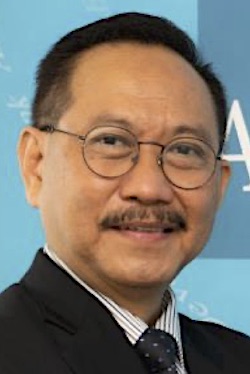
Dr. Bambang Susantono is the Vice-President for Knowledge Management and Sustainable Development of the Asian Development Bank (ADB). He is the first Indonesian in this position.
He holds a PhD in Infrastructure Planning, and has two Master’s degrees in Transportation Engineering, and City and Regional Planning from the University of California, Berkeley. He graduated with a Bachelor of Engineering degree from the Civil Engineering Department, Bandung Institute of Technology.
Dr. Susantono is responsible for managing knowledge in ADB, and coordinating researches and studies on various topics such as energy, transport, education, health, finance, urban; and also cross-cutting nexus themes such as climate change, governance, gender, social development, environment, rural development and food security, and regional cooperation. He also coordinates ADB annual flagship publications such as the Asian Development Outlook, Key Indicators of Asia Pacific, and Asian Regional Economic Integration Report.
Prior to this, Dr. Susantono was the Acting Minister, and Vice-Minister of Transportation of Indonesia, and Deputy Minister for Infrastructure and Regional Development at the Office of Coordinating Ministry for Economic Affairs. He was also Member of the Board for airline, port, telecommunications, and media companies.
He chaired several research institutes and taught in universities. He is actively doing research, publishes several books, and writes articles in the subject of infrastructure, transportation, urban and regional planning, sustainable development, and climate change.
Dr. Susantono received several accolades including Bintang Mahaputra Utama, Satya Lencana Pembangunan, Satya Lencana Wira Karya, Rekor MURI 2015, Sustainable Leadership Award 2018, Ganesha Widya Jasa Adiutama (ITB) 2019, Top 100 Fintech for SDG Influencer 2019.

Ayesha Khanna is Co-Founder and CEO of ADDO AI, an artificial intelligence solutions firm and incubator.
She has been a strategic advisor on artificial intelligence, smart cities and fintech to leading corporations and governments. She serves on the board of Infocomm Media Development Authority (IMDA), the Singapore government agency that develops and regulates its world-class technology sector to drive the country's digital economy and power its Smart Nation vision.
Ayesha is also a member of the World Economic Forum's Global Future Councils, a community of international experts who provide thought leadership on the impact and governance of emerging technologies like artificial intelligence.
In 2017, ADDO AI was featured in Forbes magazine as one of four leading artificial intelligence companies in Asia. The following year, Forbes named Ayesha one of Southeast Asia's groundbreaking female entrepreneurs.
Her clients have included SMRT, Singapore's largest public transport company; Mercy, one of the largest hospital networks in the United States; Singtel, Singapore's largest telco; SOMPO, Japan's largest insurance firm; Habib Bank, Pakistan's largest bank; and Smart Dubai, the government agency tasked to transform Dubai into a leading smart city.
Ayesha serves on the Board of Sport Singapore, the lead government agency tasked with developing a holistic sports culture for the nation. In 2014, Ayesha served as a member of the Singapore's Ministry of Education steering committee resulting in SkillsFuture, the innovative national program that aligns education with economic demand, career guidance, and lifelong learning to prepare citizens for the fourth industrial revolution.
Ayesha is the Founder of 21C Girls, a charity that delivers free coding and artificial intelligence classes to girls in Singapore. Programs that 21C Girls has partnered in include Code in the Community, a program sponsored by Google that has taught coding to thousands of 8 to 14 years olds and Empower, which has partnered with Ngee Ann Polytechnic to teach 18-to-24 year-old girls the basics of artificial intelligence.
Prior to founding ADDO AI, Ayesha spent more than a decade on Wall Street developing large-scale trading, risk management, and data analytics systems.
Ayesha co-founded the Hybrid Reality Institute, a research and advisory group established to analyze the social and economic impact of accelerating technologies.
She was featured on German TV channel ZDF's documentary “Leading Women,” which featured 12 women around the world (2019). She has been named one of Singapore's leading women in tech (Singapore Computer Society), and been recently profiled for her work in artificial intelligence in leading publications including Neue Zürcher Zeitung (Switzerland), Focus Magazin (Germany), Corriere della Sera (Italy), Dagens Næringsliv (Norway), Lëtzebuerger Journal (Luxembourg), Computer Sweden (Sweden), Information Age (Nordics), Peak (Cover Story, Singapore), and In The Black (Cover Story, Australia).
Ayesha is the author of Straight Through Processing (2008) and co-author of Hybrid Reality: Thriving in the Emerging Human-Technology Civilization (2012). She has been published and quoted on technology, innovation and smart cities in The New York Times, BusinessWeek, TIME, Newsweek, Forbes, Harvard Business Review, Strategy+Business, and Foreign Policy. She has presented at major financial, technology and other industry conferences, provided high-level government briefings, chaired symposiums such as AI Asia, and spoken at TEDx events.
Ayesha has a BA (honors) in Economics from Harvard University, an MS in Operations Research from Columbia University, and a PhD in Information Systems from the London School of Economics.
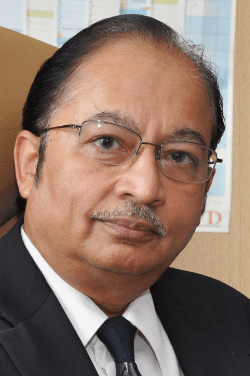
Suresh Jadhav, M.Pharm., Ph.D. is the Executive Director of the Serum Institute of India Pvt. Ltd.
He has 48 years of experience in quality control and assurance and good manufacturing and laboratory techniques and practices, laboratory inspection and validation of various production and quality control processes, pharma/toxicological screening of various drugs, toxins, and venoms, and drugs pricing.
He led the development and introduction of the meningococcal A conjugate vaccine in Sub-Saharan Africa, the development of seasonal and pandemic influenza vaccines, and played a major role in the Serum Institute of India’s acquisition of Dutch bioengineering and pharmaceutical firm Bilthoven Biologicals.
Dr. Jadhav is also actively involved in developing vaccines against COVID-19. He was President of the Developing Countries Vaccine Manufacturers Network for 5 years and has been involved with the group since its inception. He was an alternate board member of GAVI, the Vaccine Alliance, and also a member of GAVI’s Programme and Policy Committee. He is also member of the European Vaccine Initiative, FastVac, and the Health Innovation in Practice Board, among others. He was also involved in the Task Force of Sabin Vaccine Institute, the World Health Organization (WHO) Initiative for Vaccine Research Vaccine Advisory Committee, and Decades of Vaccines, among others. He is also affiliated with several Indian universities, All India Council for Technical Education, University Grants Commission, and the State Directorate of Technical Education, among others.
He is the Chairman of the Expert Committee on Vaccines and other Biologicals and also a member on the Scientific Body of Indian Pharmacopoeia Commission. He is also a member of Advisory Committee of USP for Biologicals.
He was also part of several studies on revising international reference standards for the WHO, National Institute for Biological Standards and Control, and Netherlands Vaccine Institute/National Institute for Public Health and the Environment, among others. He has published more than 100 technical papers in national and international journals.
Dr. Jadhav, who has two patents under his name, ranked 7th among the World’s 50 Most Influential People in Vaccines by Vaccinenation of Terrapinn. He was conferred the Pune Lifetime Achievement Award 2015 by the Indian Pharmaceutical Association. He was also given the District Vocational Excellence Award by Rotary for his contribution in fighting the COVID-19 pandemic and was dubbed Mega COVID Warrior.
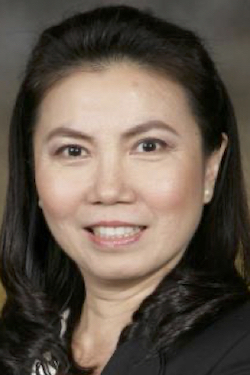
Ketsuda Supradit has been the International Economic Advisor at the Fiscal Policy Office, Ministry of Finance, Thailand since November 2018.
Prior to this, she was Minister (Economic and Finance) for the United Kingdom and Europe at the Royal Thai Embassy in London (December 2012-November 2018), Director of the ASEAN Fiscal and Financial Policy Bureau, Fiscal Policy Office, Ministry of Finance (2011-2012), Senior Expert in the Savings, Investment and Capital Market Development Bureau, Fiscal Policy Office (2010-2011), Minister-Counsellor (Economic and Finance) (2006-2010), and Director of the International Financial Cooperation Section, International and Macroeconomic Policy Bureau, Fiscal Policy Office, Ministry of Finance (2001-2005).
Ms. Supradit has an MBA from the University of Exeter, United Kingdom and a BS in Economics from the Chulalongkorn University, Bangkok.
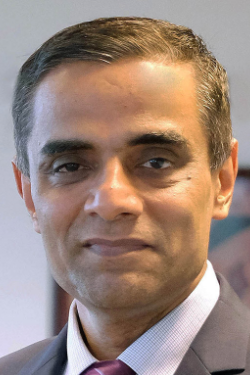
Ramesh Subramaniam is the Director General of the Southeast Asia Regional Department of the Asian Development Bank (ADB). He oversees ADB’s relationship and public sector work (including all technical assistance, knowledge generation and dissemination, and grant and loan projects) in all countries of the Association of Southeast Asian Nations (ASEAN). He is also in-charge of ADB’s support for all subregional cooperation initiatives in the region, including ASEAN, Brunei–Indonesia–Malaysia–Philippines East ASEAN Growth Area, Greater Mekong Subregion, and Indonesia–Malaysia–Thailand Growth Triangle.
With ADB for over 20 years, Ramesh has worked on several projects across the Asia–Pacific region. Infrastructure financing is among his primary areas of interest. He represents ADB on the World Economic Forum’s Global Future Council on long-term investment and infrastructure development. He has a PhD in Economics from McMaster University (Canada), and has had post-doctoral fellowships in development economics and corporate finance and industry at Yale University (USA) and University of St. Andrews (UK).
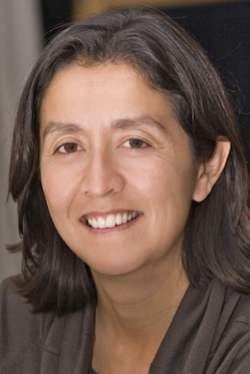
Janti Soeripto is President and Chief Executive Officer of Save the Children, an organization that gives children in the United States and around the world a healthy start, the opportunity to learn, and protection from harm.
The global Save the Children movement serves over 134 million children in the US and in 120 countries. As a global organization, Save the Children has committed to driving down the numbers of preventable deaths of children under 5, ensuring every child gets a high-quality basic education and protecting all children from harm.
She assumed the role on 1 January 2020, having served since May of 2019 as President and Chief Operating Officer of Save the Children US, a position having oversight for setting agency strategy, ensuring all parts of the organization are well managed, staffed and aligned, and operate as effectively as possible. Strengthening accountability for results, and overseeing, integrating and coordinating divisional activities (human resources, international operations, legal and risk services, information systems, finance, marketing and communications and fundraising) also fell within her scope of work.
Prior to joining Save the Children US, Janti worked for 8 years as deputy CEO of Save the Children International, where she was responsible for market growth and development, global strategy development, communication, and venture partnerships.
Before her Save the Children work, Janti spent three years with Kimberly-Clark, as Country Director in Indonesia. Immediately before this she was Managing Director for Belu in London, the first bottled water brand in a biodegradable bottle that donates all profits to charity. Previous to this, she enjoyed a 15-year career with Unilever, both in finance, as well as general management, working in the Netherlands, UK, and Singapore.
Janti graduated from the Erasmus University in Rotterdam in 1991. She is half Indonesian, half Dutch, and is married with two children.
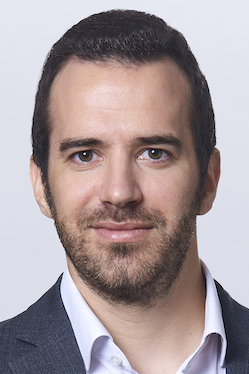
Magnus Ekbom is part of Lazada Group’s founding team and is the Chief Strategy Officer. He is responsible for the Group’s long-term strategy development as the Southeast Asia flagship platform of Alibaba Group. He was appointed Acting Chief Executive Officer of Lazada Malaysia in 2021 in addition to his existing responsibilities.
He previously served as Chief Executive Officer for Lazada Group’s business in Indonesia until 2016. Prior to co-founding Lazada, he was working for the investment group Kinnevik and later Rocket Internet.
Magnus graduated with a B.Sc. in Business & Economics from the Stockholm School of Economics.
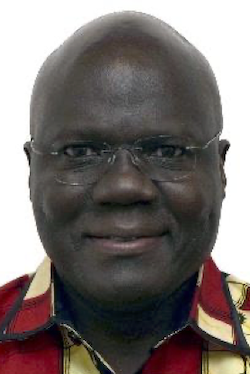
Dr. Patrick L. Osewe is the Chief of the Health Sector Group at the Asian Development Bank (ADB). He provides leadership on policy, technical, and operational matters. In close collaboration with the Sector Committee, he leads the application of evidence-based and innovative approaches to address priority and emerging health issues in Asia and the Pacific.
Since the outbreak of the coronavirus disease (COVID-19), Patrick has provided leadership and guidance in the implementation of ADB’s $20-billion commitment to respond to COVID-19 and $9 billion for Developing Member Countries (DMCs) to obtain and deploy COVID-19 vaccines . His work related to COVID-19 includes providing technical assistance to operational teams and DMCs, convening global partners to reach consensus and prioritize investments, mobilizing leading private sector firms to support a range of response activities, and collaborating with the International Air Transport Association, International Civil Aviation Organization, airlines, and hotels to safely restore travel and tourism industries based on available evidence.
Prior to his time at ADB, Patrick was a Global Lead for the World Bank’s Healthy Societies Global Solutions Group. In this role, Patrick provided technical and operational guidance to countries, World Bank teams, and the global health community to address public health challenges. These included developing strategies for achieving universal health coverage (UHC), combatting the emerging burden of non-communicable diseases, and addressing health security as both an economic issue and as a major threat to achieving UHC.
Patrick has led major global and regional multi-sectoral efforts to address communicable and non-communicable diseases and built the capacity of World Bank teams and clients in the use of results-based management. He has over 25 years of experience as a global leader in health, including having previously worked for USAID and the US Centers for Disease Control and Prevention as well as providing technical support to UN agencies and countries in different parts of the world.
Patrick holds an MD from the University of Nairobi and an MPH from the Harvard School of Public Health.

Melati Wijsen is the Founder of Bye Bye Plastic Bags and YOUTHTOPIA Voices.
At just 19, Melati is a change-maker. She's an accomplished public speaker with a track record of bringing real change to people’s lives and to government policy concerning sustainability. She is an enabler for youth empowerment globally.
She founded Bye Bye Plastic Bags in 2013 at the age of 12 and has been leading the movement since. Thanks to Bye Bye Plastic Bags' advocacy, the Balinese government banned the use of plastic bags, straws, and styrofoam on 23 June 2019. Bali is the first Indonesian province to enforce the ban.
Melati also founded the people's movement One Island One Voice in 2015, enjoining Bali-based businesses to come together to say NO to single-use plastics.
In 2017, Bye Bye Plastic Bags set up Mountain Mamas, a social enterprise empowering women in the mountains of Bali, to make bags out of pre-loved materials. Each woman gets paid for every bag that she makes. Half of the proceeds go back to the community for education, waste management, and health insurance, while the other half helps finance Bye Bye Plastic Bags' projects.
Melati's most recent project, YOUTHTOPIA Voices, empowers young people globally to accelerate change through education, coaching, and global sustainable platforms.
She has spoken on TED, the European Parliament in Brussels, and the United Nations in New York. She was named among Forbes top 10 most inspiring women in Indonesia, awarded CNN HEROES Young Wonders, and included in the Top 25 Most Influential Teenagers by Time magazine.
Being very passionate about protecting the ocean, she is an alumni member of the World Oceans Day Youth Advisory Council.
Melati is half Indonesian and half Dutch. She graduated from Green School Bali in 2017 and has been a full-time change-maker ever since.
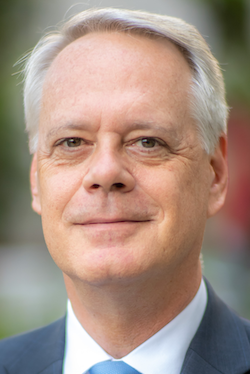
Robert Guild is Chief Sector Officer of the Asian Development Bank (ADB). He is responsible for ADB-wide technical collaboration, innovation, and knowledge management for sector groups in transport, energy, urban, water, education, health, and finance. He is also responsible for management and resource mobilization for 19 bank-wide trust funds covering all sectors. He has been with ADB since 2003.
Dr. Guild is an expert on infrastructure investment for social and economic development. He has advised governments, the private sector, and multilateral institutions in over two dozen countries in Asia, the Pacific, and Latin America on public investments, public-private partnerships, and national and regional development plans. He holds degrees in civil engineering, public administration, urban and regional planning, and international development.
Dr. Guild began his career as an engineer in the United States and has worked extensively for bilateral and multilateral agencies in international development. He has held faculty appointments at universities in the United States, the Pacific region, and New Zealand.
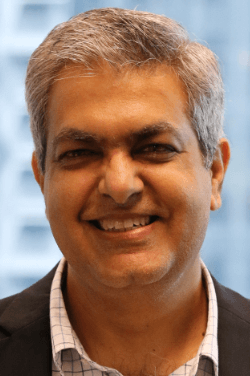
Amit Prothi leads the resilience practice across the Asia-Pacific region for the Resilient Cities Network. For over 20 years, he has led and worked with multidisciplinary teams on thematic topics that relate directly to urban resilience, including environmental planning, urban policy, land use planning, natural resource management, flood management, disaster risk reduction, housing, and community development.
Amit has worked with local and national governments across North America, Asia, and Africa on projects and studies funded by The World Bank, the Asian Development Bank, The Rockefeller Foundation, US Government, and numerous municipalities and private-sector clients.
He holds a dual master’s degree in Regional Planning and Landscape Architecture from the University of Massachusetts at Amherst, and a BA in Architecture from the School of Planning and Architecture in Delhi. Amit pursued doctoral studies (ABD) in Urban Studies and Planning from the Massachusetts Institute of Technology.

Gil Gonzales is the Executive Director of the ASEAN Business Advisory Council, the apex private sector body mandated by the ASEAN Leaders that pursues the strategic goals under the AEC Blueprint 2025.
Throughout his career, Mr. Gonzales has become an expert in corporate governance, risk management, strategic and corporate planning, human resource and change management, general administration, and advocacy for governance reforms. He is a regular speaker on those topics for various business organizations and entities throughout ASEAN.
He currently works on delivering the Council’s numerous policy reform recommendations on trade facilitation, financial integration, inclusive business, among others.
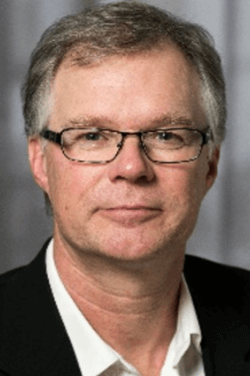
Søren Hansen is Team Leader of ASEAN–Australia Smart Cities Trust Fund and Project Director of consulting engineering group Ramboll.
He is an expert in master planning, urban development, transportation and transport planning services as well as environmental assessment studies.
He is an experienced Project Director with a demonstrated 30-year history of working in and across the civil engineering industry disciplines. He has strong professional skills in engineering, urban master planning, design management, business development, feasibility studies, and comprehensive infrastructure planning.
Over the last 10 years, Mr. Hansen has been developing livable cities strategies, including Rambøll’s Liveable Cities Concepts in urban development projects around the world. He has also won first prize in several international and domestic architecture competitions.
He holds an M.Sc. in Engineering specialized in Urban Planning and Transportation from the Technical University of Denmark.
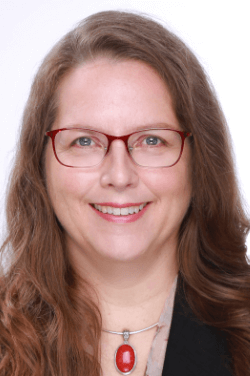
Deborah Elms is the Founder and Executive Director of the Asian Trade Centre. She is Vice-Chair of the Advisory Board for the Asia Business Trade Association, Co-Chair of the Trade Policy Committee of the Global Trade Professionals Alliance, and also a senior fellow in the Singapore Ministry of Trade and Industry’s Trade Academy.
Previously, Dr. Elms was head of the Temasek Foundation Centre for Trade & Negotiations and Senior Fellow of International Political Economy at the S. Rajaratnam School of International Studies at Nanyang Technological University, Singapore.
Dr. Elms received a PhD in political science from the University of Washington, a MA in international relations from the University of Southern California, and bachelor’s degrees from Boston University.
Dr Elms publishes the Talking Trade Blog.
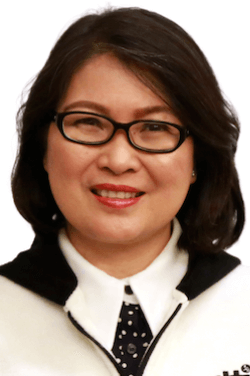
Dr. Rafaelita “Fita” M. Aldaba is Undersecretary for Competitiveness and Innovation of the Philippine Department of Trade and Industry (DTI) and serves as a member of the Board of Governors of the Philippine Board of Investments.
She is responsible for DTI’s initiatives on innovation and entrepreneurship, startup ecosystem development, national competitiveness, accreditation of conformity assessment bodies, and trade and industrial policy research.
Prior to her appointment in government, Dr. Aldaba served as Senior Research Fellow and Acting Vice-President of the Philippine Institute for Development Studies.
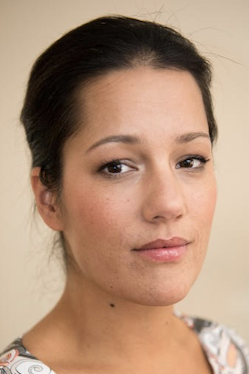
Inger Ashing is Chief Executive Officer of Save the Children International.
A respected child rights activist, Inger has been associated with Save the Children for more than 25 years, first serving as a youth advocate and later on the Boards of Save the Children Sweden and Save the Children International.
Prior to her appointment in September 2019, Inger was Director General at the Swedish Agency against Segregation, a Swedish government agency, where she worked to reduce segregation and social inequality, with a special focus on improving the situation in socio-economically disadvantaged areas.
She has also served as the National Coordinator for Youth Not in Education or Employment for the Swedish Government, Deputy Director General of the Swedish Agency for Youth and Civil Society and the CEO of the Global Child Forum. Inger is also a member of the Ethics Council at the Swedish Migration Agency.
She has been an expert to and board member of several authorities and committees such as the Delegation for Human Rights, the Swedish National Knowledge Centre on Violence against Children, the Delegation for the Employment of Young People and Newly Arrived Migrants, the Swedish Enforcement Authority, the National Board of Institutional Care, and the Monitoring Committee for The European Social Fund.
You can follow her on Twitter at @IngerAshing
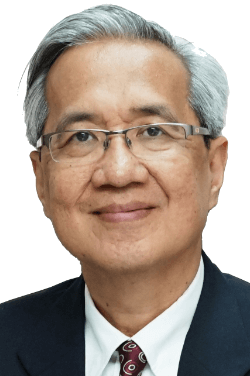
Dr. Aladdin D. Rillo is the Deputy Secretary-General for the ASEAN Economic Community (AEC). He supports ASEAN's Secretary-General by providing leadership in the implementation of the AEC Blueprint 2025 and leads the AEC Department of the ASEAN Secretariat. He also provides strategic advice to support ASEAN’s economic integration agenda
Before assuming this role, Dr. Rillo was Senior Economist with the Asian Development Bank Institute in Tokyo where he designed and administered capacity-building training and policy dialogue on development issues.
Prior to that Dr. Rillo worked at the ASEAN Secretariat for more than 10 years where he served in various positions; the latest as Director and Chief Economist of the ASEAN Integration Monitoring Office (2010–2013), during which he spearheaded the implementation of regional economic surveillance and integration monitoring in ASEAN as well as provided high-level policy and recommendation to support ASEAN economic integration initiatives.
Dr. Rillo holds PhD and MA degrees in economics from the University of Hawaii, and an AB in economics from the Ateneo de Manila University. He has also held various lecturing and senior economist positions in the region and beyond.
Dr. Rillo has written and published extensively on the ASEAN economy and on the broader economic and finance issues.
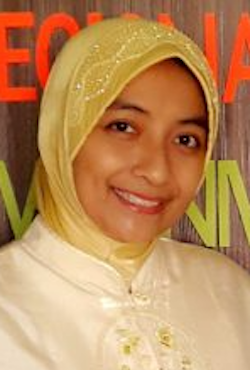
Wiwandari Handayani is an Associate Professor at the Department of Urban and Regional Planning, Faculty of Engineering, Diponegoro University, Indonesia.
She is an expert in the field of urban–rural linkage and regional planning. Her research focuses on urban and regional resilience in the context of disaster risk reduction, climate adaptation, and governance. She recently assisted the Semarang City Government to develop the Semarang Resilience Strategy and leads the governance cluster within the Cascading Semarang Consortium.
She obtained her doctoral degree in Regional Development Planning from University of Stuttgart in Germany.
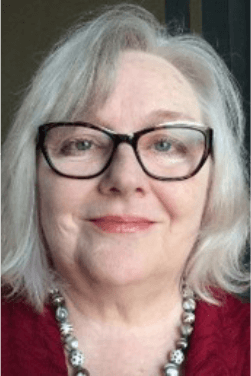
Annette Chooi has over 30 years experience in tax administration working for the Australian Taxation Office (ATO) and in the private sector, in a wide range of positions.
In the ATO, she held senior roles in both the Compliance and Operations groups and lead a number of major policy reforms including a new tax system for small business, reforms to improve domestic tax policy and administration, and the implementation of tighter regulation for large businesses with international operations.
She has held a number of senior appointments on the boards of both not-for-profit and unlisted companies, primarily in the financial services and social media sectors.
Annette currently runs a consulting firm providing professional services in areas including: Business development for startups, corporate governance and risk management; and revenue administration.
She has worked extensively across Asia and the Pacific, and Africa.
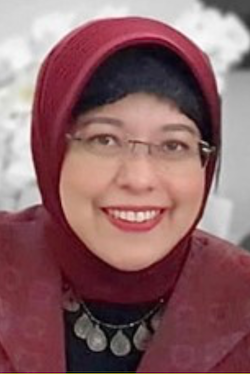
Amalia Adininggar Widyasanti is Deputy Minister for Economic Affairs at the Ministry of National Development Planning/Bappenas, Indonesia.
Previously, she was Senior Advisor to the Minister for Economy and Financing until the end of 2020.
She started her career in the ministry in 1999 at the Directorate of Industry, Trade, and Tourism. She was appointed Deputy Director for Trade in 2006 and as Director for Trade, Investment, and International Economic Cooperation from November 2011 to July 2016. She was then assigned as Director of Macroeconomic Planning and Statistics Analysis between July 2016 and February 2018, before being promoted to her current position. She was also appointed as the Head of SDGs National Coordination Team Secretariat in 2018 and has held that role until 2020. Now, she is the Vice-Head of SDGs National Coordination Team.
She obtained her PhD in economics from the University of Melbourne Australia in 2005.
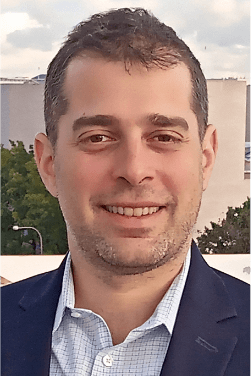
Dr. Jeremy Gorelick is Head of Special Initiatives at the London-based Green Finance Institute and Senior Advisor for the UK Government's Future Cities program.
He is a development finance expert specializing in urban infrastructure and green/sustainable solutions.
He has previously consulted to the American, British, French, and German governments as well as the Bill & Melinda Gates Foundation on the design and implementation of their infrastructure finance programs and started his career originating large infrastructure transactions at BNP Paribas and, subsequently, Dresdner Kleinwort Wasserstein.
In Asia, he has worked extensively on program design and implementation in Bangladesh, Cambodia, India, Pakistan, the Philippines, and Viet Nam.
He has been lecturing at the Johns Hopkins University on financial innovations in emerging markets since 2010 and received his doctorate from the University of Cape Town.
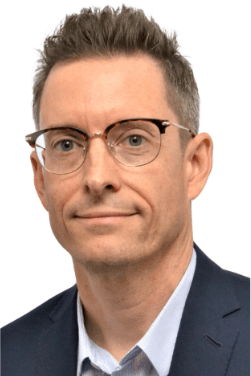
Andrew Auerbach is the Organisation for Economic Co-operation and Development’s (OECD) tax representative in Southeast Asia, based in Jakarta. Andrew is a Canadian and US trained lawyer and has been with the OECD’s Centre for Tax Policy and Administration since 2007.
His work has spanned the full range of issues that dominate the international tax policy landscape today, including base erosion and profit shifting, promoting exchange of information and tax cooperation, tax certainty and tax policies for inclusive growth.
Prior to joining the OECD, Andrew worked in private practice, providing corporate and international tax advice to clients in both the US and Canada, and also as a legislative drafter with Canada’s Department of Finance.
Andrew holds law degrees from Osgoode Hall Law School and the University of Montreal, as well as an LLM in International Tax Law from New York University.

Sean Kidney is CEO of the Climate Bonds Initiative, an international NGO working to mobilize global capital for climate action. Projects include a green bond definitions and certification scheme with $34 trillion of assets represented on its Board and some 200 organizations involved in its development and governance; working with the central bank of the People's Republic of China (PRC) on how to grow green bonds in the PRC; and market development programs in Brazil, Colombia, Mexico, Nigeria, and East Africa.
He is a member of the European Commission's Platform on Sustainable Finance, and was a member of its predecessors, the 2017 EU High Level Expert Group on Sustainable Finance and the EU Technical Expert Group on Sustainable Finance. He is also a member of green finance advisory groups in the PRC, India, Kazakhstan, and Mexico and an Advisory Board member of the International Sustainable Financial Centre in Prague.
He has previously been a consultant on green bonds to the United Nations Secretary General, a member of the People's Bank of China Green Finance Task Force and a member of the Commonwealth Secretariat’s Expert Committee on Climate Finance.
Sean is also a Professor in Practice at SOAS University of London.
For the past three years he has been voted GlobalCapital magazine’s “Most Influential Champion” of the sustainable finance market.
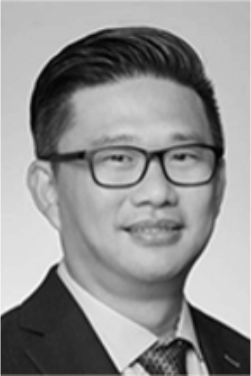
Damien Yee is the Co-Founder and Chief Learning Officer of Epitome Global, responsible for business strategy and content development. He has spent 15 years in the field of training, competence, leadership development, and exploring learning innovation and technology with the Ministry of Defence (Singapore), building expertise in the implementation of smart classrooms, digital content development, and the running of learning development departments.
A 5-year stint in the infocomms and telco services industry followed, where Damien continued to be immersed in developing and emerging technology, covering regional markets, and running large-scale learning projects. These ranged from infrastructural pieces, large-scale digitalization of custom content for organizations to the development and integration of multiple learning platforms in public schools, universities, adult enterprise learning, corporate training to national skill centers. Damien is also a renowned business mentor and serial entrepreneur in multiple industries.
Damien has been recently appointed as a member to the Council of the Institute of Adult Learning in Singapore.
Damien has an excellent track record in pedagogy planning, training needs analysis, and learning analytics tracking.
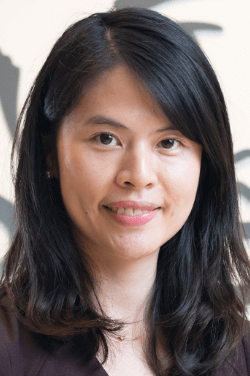
Casey Ho is Special Assistant to the Chairman of Prudential Insurance Growth Markets.
Under that role, Casey researches on a range of topics and projects in Southeast Asia, including capital markets development, insurance and pension development, ESG investing and climate change, geopolitics and trade, among others. She also works extensively with Prudence Foundation, the community engagement arm of Prudential in Asia and Africa, and is leading the implementation of the Foundation's SAFE STEPS D-Tech (Disaster Tech) Awards.
Before joining Prudential, Casey was Project Leader at the Boston Consulting Group’s Hong Kong, China office, advising financial services companies with operations in the People's Republic of China on strategy design, lean organization, and operations transformation.
Casey holds a BBA in Global Business and Finance with first class honors from the Hong Kong University of Science and Technology.
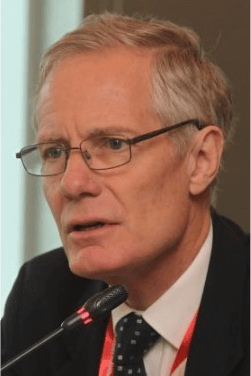
Dr. Philip Andrews-Speed is a Senior Principal Fellow at the Energy Studies Institute, National University of Singapore.
He has 40 years in the field of energy and resources, starting his career as a mineral and oil exploration geologist before moving into the field of energy and resource governance.
His main research interest has been the political economy of the low-carbon energy transition. The People's Republic of China (PRC) has been a particular focus for his research, but in recent years he has been more deeply engaged with energy challenges in Southeast Asia.
He is currently leading a research project on the governance of nuclear safety. His latest book, China as a Global Clean Energy Champion: Lifting the Veil, appeared early in 2019.
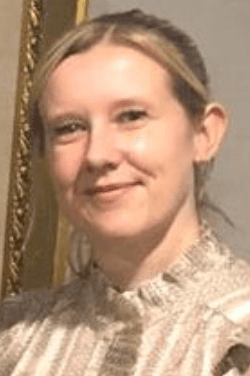
Randi Kristiansen works in the Renewable Integration and Secure Electricity division of the International Energy Agency (IEA) as an Economics and Financial Analyst where she works with power system flexibility, market reform, and cross-border (within countries and between countries) trading. Her focus is on Asia in general where focus areas include ASEAN, People's Republic of China, and India.
Before joining the IEA she has spent 10 years trading power, coal, gas, and electricity certificates in various European markets, as well as structuring corporate PPA’s for renewables.
She managed a portfolio of more than 1,500 MW of wind in Scandinavia, where she was in charge of forecasting and associated imbalances of both renewable energy portfolio as well as consumption portfolio.
After trading she joined the Danish Transmission System Operator, where she worked in the market development department. She has been involved in creating methodologies for transmission capacity calculation, financial long-term transmission rights, and setting up the Nordic Regional Security Coordinator.
Randi has a master's degree in economics from Aalborg University, Denmark.
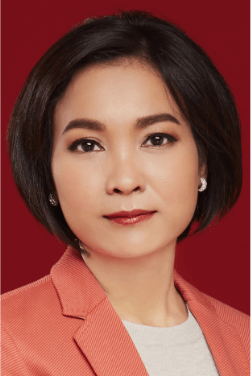
Serey Chea is Assistant Governor at the National Bank of Cambodia.
Since Cambodia is a highly dollarized economy, Serey, as a central banker, is a vocal proponent of the greater use of the local currency to promote the country's independence on economic and monetary policy.
Under her guidance, innovative policy instruments were introduced to develop the interbank markets and promote the use of local currency.
Serey is also a member of different policy-driven committees within the bank and nationally. She is Chairwoman of the Credit Bureau Cambodia Ltd., the first and only privately run credit sharing system in Cambodia. As Chairwoman of the Clearing House Operation Committee, she has been leading the Bakong Project, an acclaimed initiative of the National Bank of Cambodia in exploring and introducing a new generation of payment system using blockchain technology.
She is a member of the Southeast Asia Advisory Council of Women World Banking, and a member of Young Global Leaders, Class of 2019, a forum created by the World Economic Forum (WEF). Also, she is a member of the WEF’s Digital Currency Governance Consortium and the Advisory Committee of the Digital Payments for Trade and Commerce project.
She is a strong advocate for women economic empowerment and financial inclusion and is part of the Alliance for Financial Inclusion’s high-level Gender and Women’s Financial Inclusion Committee.
Serey was a senior fellow at the Lee Kuan Yew School of Public Policy and is currently pursuing her PhD degree at the University of Adelaide, Australia.
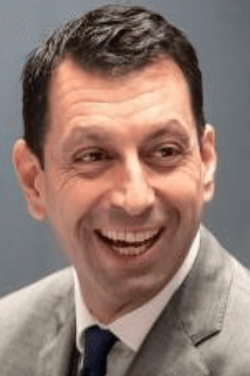
Kaveh Zahedi is the Deputy Executive Secretary of the United Nations Economic and Social Commission for Asia and the Pacific (ESCAP). He oversees ESCAP’s economic, social and environmental programs, including on finance, trade, energy, natural disasters, statistics, and the overall implementation of the 2030 Agenda for Sustainable Development.
He also supervises ESCAP's institutes providing technical assistance on ICT for Development (Incheon), agricultural mechanization (Beijing), statistics (Chiba), and technology transfer (Delhi). He represents ESCAP in UN coordination mechanisms, facilitates collaboration with UN Resident Coordinators and Country Teams and oversees implementation of the UN Development System reform.
Prior to this, Mr. Zahedi worked at the United Nations Environment Programme (UNEP), including as its Regional Director and Representative for Asia and the Pacific and Deputy Director of the Division of Technology, Industry and Economics, overseeing work on green economy, resource efficiency, and climate change. He also set up and headed the Climate and Clean Air Coalition. For over 2 decades, Mr. Zahedi has worked for the United Nations in Kenya, Mexico, Thailand, and Europe.
Before joining the United Nations, Mr. Zahedi worked at an NGO as project manager for micro credit and development projects in Latin America and the Middle East. He holds a master’s degree from the Fletcher School, Tufts University, US, and a BSc first class degree in Economics & Geography, from University College London.
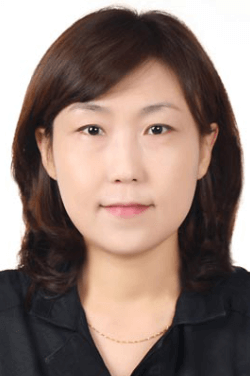
Jin Seon Park is Vice-President for Global Business Development of SK Bioscience.
She is responsible for business development and international regulatory affairs (RA) in vaccines and bioproducts outside of the Republic of Korea (ROK), including external partnerships.
Ms. Park led the licensing agreement for next-generation pneumococcal conjugate vaccines and Madin-Darby canine kidney cell-based influenza vaccine manufacturing technology with Sanofi Pasteur. She also spearheaded contract manufacturing organization agreement with Astra Zeneca and contract development and manufacturing organization and licensing agreements with Novavax for their COVID-19 vaccine production.
She and her team partner with charitable and non-profit organizations (e.g. Bill and Melinda Gates Foundation and the Coalition for Epidemic Preparedness Innovations) for diverse vaccine programs to accelerate global public health. Her team is responsible for alliance and partnership management with partners and stakeholders (i.e. funders) for co-development and manufacturing collaboration after contract.
Additionally, she plays a role in rolling out SK Bioscience’s products and portfolio including registration and commercialization outside of the ROK.
Ms. Park joined SK Pharma in 1999. Her past roles included stints in corporate strategy and R&D planning in the pharmaceutical sector. She was also Director of Global Business Development and International RA for SK Chemicals’ pharmaceutical, vaccine, and blood derivative products.
Ms. Park earned her bachelor’s degree from Seoul National University and her master’s degree in pharmacokinetics from Seoul National University’s Pharmacy School.
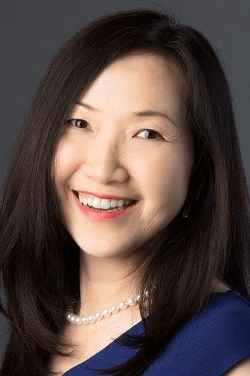
Lee Chew Tan leads Amazon Web Services' (AWS) public sector business, including government, education, health, and nonprofit organizations across Indonesia, Malaysia, the Philippines, Singapore, Thailand, Viet Nam, and other ASEAN countries.
Lee Chew is focused on working with public sector organizations and AWS Partner Network in leveraging AWS cloud technology to drive innovation and initiatives that positively impact the life of citizens.
Lee Chew brings more than 30 years of business development and marketing experience in the ICT industry. Prior to joining AWS, she was the global Senior Vice-President of Sales and Category management for Hewlett Packard Enterprise's (HPE) Hybrid Infrastructure Technology group, where she led go-to-market planning and execution of product sales strategies across HPE’s 11 geographies worldwide. In that capacity, her portfolio included data center infrastructure and software-defined technologies.
In Lee Chew’s 22 years with HPE, she had held various senior leadership roles including General Manager of the Asia Pacific Server business, Asia Pacific Vice-President of Global and Enterprise Sales, Vice-President for Services Sales, and Managing Director for South East Asia. Prior to HPE, she was also head of sales and relationship management for investor services at State Street Bank & Trust.
Having operated out of Singapore and California with business experiences in North America, Latin America, Europe and Asia, Lee Chew is a firm believer of talent development and a strong advocate for diversity. She is appointed as the president for the Women in Tech Chapter at the Singapore Computer Society since January 2021, and serves as the Vice-Chairperson of the Singapore Heart Foundation.
Lee Chew earned her bachelor's degree in Arts and Honors in Philosophy from the National University of Singapore.
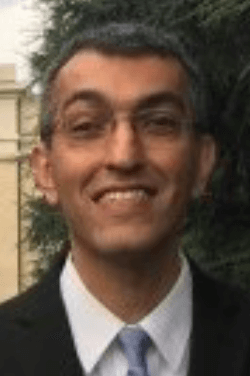
Sami Farhad is Senior Director of the Globalization Office of Alibaba Group, where he contributes to international strategy, policy initiatives, and collaboration with governments and international organizations.
Since 2017, his work has focused on the electronic World Trade Platform (eWTP) initiative, including the launch of international eWTP Hubs in Belgium, Ethiopia, Malaysia, Thailand, and Rwanda. He was also involved in drafting the report of the UN Secretary General’s High Level Panel on Digital Cooperation issued in 2019.
He is a graduate of Harvard University and Columbia Law School, and studied at the Beijing Language & Culture University and Renmin University. He has lived in the People's Republic of China for 20 years.
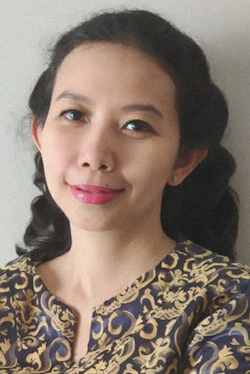
Pande Putu Oka Kusumawardani is the Acting Director for the Center for State Revenue Policy, Fiscal Policy Agency, Ministry of Finance, Indonesia.
She has been dealing with international tax issues since 2010.
Prior to her career at the Fiscal Policy Agency, she worked for the Directorate General of Taxes at the Ministry of Finance.
She completed her bachelor's degree and master's degree in finance from the University of Indonesia. She also obtained her master's in public policy from Hitotsubashi University, Tokyo.
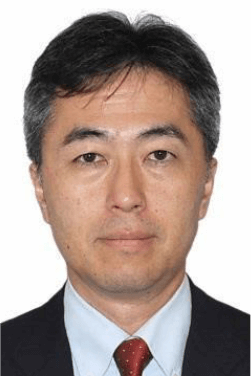
Hideaki Iwasaki is the Asian Development Bank's Country Director for Thailand, overseeing its operations for Thailand and selected initiatives under the Greater Mekong Subregion program. Mr. Iwasaki is a seasoned transport sector expert with more than 30 years of work experience.
From 2014 to June 2017, Mr. Iwasaki was ADB’s transport sector director for Southeast Asia. During 2002–2012, he was with ADB’s transport sector unit for South Asia and led such programs as post-conflict reconstruction in Afghanistan, and rural roads development in India. He also had a short stint in Myanmar in 2012-2013 to re-establish ADB's operations there.
Before joining ADB in 2002, Mr. Iwasaki worked for the Government of Japan for 12 years, involved in policy development and program administration in transport and urban/regional programs.
Mr. Iwasaki has master’s and bachelor’s degrees in urban planning from the University of Tokyo, Japan, and a master’s degree in transportation engineering from Virginia Tech, US.
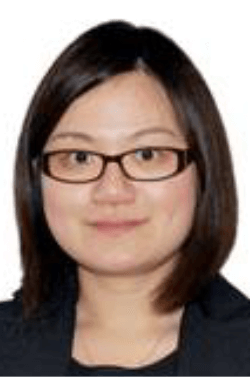
Jiahe "Pamela" Chiang is an experienced team leader with more than 20 years of international experience in the development and management of transport projects including urban transit systems, railways, seaports, airports, roads, cross-border transport, and regional connectivity.
She co-authored recent knowledge products, Smart Ports in the Pacific, Trade and Maritime Trends in the Pacific, and is currently delivering a partnership study with ARUP on the Reimagining the future of transport across Asia and the Pacific.
Prior to ADB, Pamela worked in both private and public sectors in Singapore and the United Kingdom, in areas including transport appraisal, policy research and formulation, masterplanning, and transport feasibility studies.
Pamela holds a master's degree in business administration from Warwick University (UK), and a Bachelor of Civil Engineering from the National University of Singapore.
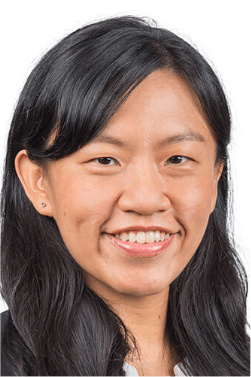
Ng Kai Scene is Director of Infrastructure Asia, a government office created by the Monetary Authority of Singapore and Enterprise Singapore (a statutory board under the Ministry of Trade & Industry) that supports Asia’s economic and social growth through infrastructure development.
Prior to her current appointment, Ms. Ng was the Divisional Director for the Environmental Solutions Division at International Enterprise Singapore. She was responsible for supporting Singapore-based companies to venture into markets such as the People's Republic of China, India, Indonesia, and the Middle East.
Her focus sectors include water, renewables, and energy efficiency. She also developed initiatives to strengthen Singapore’s position as the region’s infrastructure hub.
Ms. Ng started her career in ExxonMobil Asia Pacific Pte. Ltd. as a Process Engineer and subsequently a Planning Analyst. She holds a master's degree in environmental management and a bachelor of engineering degree (environmental) with first class honors from the National University of Singapore.
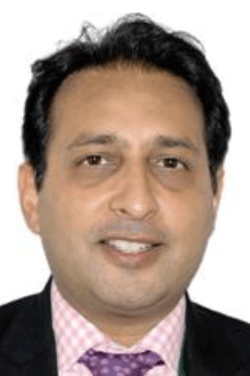
Anouj Mehta focuses on Innovative and Green Finance across Southeast Asia.
Through the Asian Development Bank's Southeast Asia Department's innovative finance hub, he manages the ASEAN Catalytic Green Finance Facility as well as a number of initiatives and partnerships to develop leveraged finance approaches both as conceptual instruments and in projects.
He has been focusing on green finance since 2015 with the development of the Catalyzing Green Finance publication and related ADB projects in the People’s Republic of China (PRC) and Southeast Asia. He recently led the development of a "Green Recovery Strategies" knowledge product and a green recovery fund in advanced formulation.
Previously Anouj led a pioneering public-private partnerships and sub-sovereign initiative in India from both the ADB and the World Bank.
Anouj was an investment banker at JP Morgan Chase prior to joining ADB and has expertise in mergers and acquisitions, project and corporate finance, capital markets, and sovereign and non-sovereign infrastructure financing.
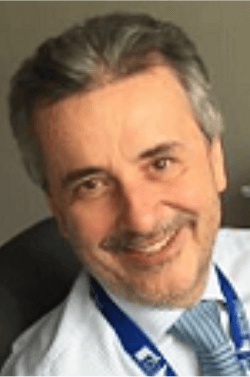
Jean-Louis Ville is the Unit Head of East Asia and Pacific, Directorate-General for International Partnerships, European Commission.
He was previously the Acting Director for Human Development and Migration in DG DEVCO (previous name of the Directorate General for International Partnerships) as well as Head of Unit, in charge of Human Rights, Gender, and Democratic Governance.
Having worked for the European Commission since 1987, he has occupied several positions in various Directorates-General (Agriculture, Budget and Development, and Cooperation) as Unit Head for Budget, Finance and Contracts, Regional Programmes for the East and South Neighbourhood. He also served for a period as Deputy Head of the Private Office of the Rt Hon C. Patten during his mandate as European Commissioner for External Relations.
Mr. Ville studied political science in Strasbourg, European Affairs in Bruges, and European law in Paris.
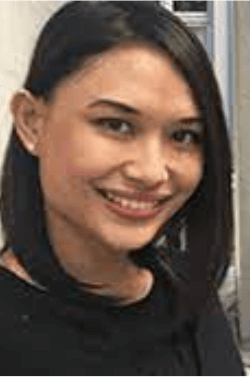
Tiza Mafira is Climate Policy Initiative's Associate Director, based in Indonesia, where she leads a team of analysts to deliver studies on climate finance effectiveness and innovations for policy makers. With a background in environmental law, Tiza is a public policy expert specializing in land use and climate finance.
Tiza joined he think tank in 2014, and played a large role in establishing the Indonesia office. Tiza has led work at Climate Policy Initiative on improving land productivity through fiscal policy, a focus study on Indonesia’s Village Fund, as well as a study that maps, for the first time, the flow, supply chain, and efficiency of oil palm in East Kalimantan.
She is also part of a technical experts team facilitating Indonesia’s Ministry of Environment and Ministry of Finance in establishing an Environmental Fund Public Services Agency.
She is also the Executive Director of the Indonesia Plastic Bag Diet Movement, a community-based organization which advocates for policies and awareness to reduce single-use plastics. Her activism in this field earned her a mention by the UN Environment as one of five global Ocean Heroes in 2018.
Prior to joining Climate Policy Initiative, Tiza worked as a corporate attorney in Jakarta specializing in natural resources and forestry law. She has also worked at the Office of the Special Staff of the President during President Susilo Bambang Yudhoyono’s term as a speech writer and climate change policy handler.
She holds a master of laws from Harvard Law School and a bachelor of laws from Universitas Indonesia, focusing on environmental law and climate change.
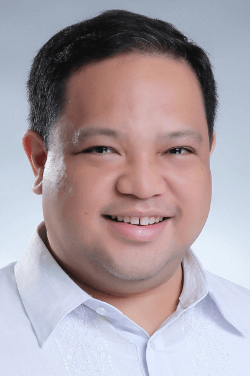
Ephyro Luis B. Amatong was appointed a Commissioner of the Securities and Exchange Commission (SEC) in 2014, and is currently the supervising commissioner for the Markets and Securities Regulation Department and the Economic Research and Training Department.
Before joining the SEC, Mr. Amatong was the Assistant Secretary of the Department of Finance where he had an active role in the privatization of 74 hectares of the Food Terminal Inc. (P24 billion). He was also involved in a number of public-private partnership (PPP) projects such as the PPP for School Infrastructure Project Phase I ($397 million), the Ninoy Aquino International Airport Expressway Project ($345 million), and the Automated Fare Collection System ($38 million).
He also served in various capacities in the government, namely as Vice-President of the Philippine Deposit Insurance Corporation (2012–2013), Corporate Staff Officer of the National Power Corporation (2010-2012), Acting Chairman of the Local Water Utilities Administration (2011), Corporate Legal Counsel and Assistant Corporate Secretary of PNOC Exploration Corporation (2008-2010), Adviser to Hilario G. Davide, Jr. of the Permanent Mission of the Philippines to the United Nations (2007-2008), and Senior Law Clerk to then Justice Conchita Carpio Morales of the Supreme Court of the Philippines (2003-2005).
Before joining the government, Mr. Amatong was an associate with the Villaraza & Angangco Law Offices (2002-2003), where he dealt with high-profile litigation cases.
Mr. Amatong was admitted to the Philippine Bar in 2002 and the New York Bar in 2007. He holds a master of laws (2006) degree, international finance concentration, from Harvard Law School. He also holds a bachelor of laws (2001) degree from the UP College of Law, and a bachelor of science in business economics (1997) degree, cum laude, from the UP School of Economics.
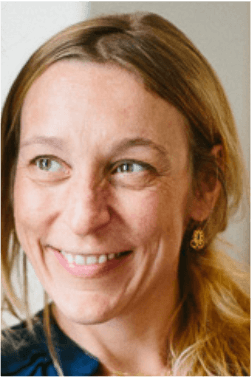
Virginie Marchal is Senior Programme Manager at the Organisation for Economic Co-operation and Development (OECD), leading a Southeast Asia sustainable infrastructure program.
Over the past 10 years, her research area focused on the nexus between infrastructure, climate, and inclusiveness policies (renewable energy, sustainable mobility, green cities, and sustainable finance). In 2018, she led a joint World Bank, UN Environment, and OECD initiative Financing Climate Futures: Rethinking Infrastructure. The initiative launched during the 2018 UN General Assembly laid out an agenda to enable societies around the world to undertake the kind of systemic actions that the transformation towards a low-emission, resilient future will require.
Prior to this role, she was leading a team working on climate mitigation, and coauthored several reports on the need for policy alignment for the low-carbon transition, including for cities.
Prior to joining the OECD, she held several positions in the oil and gas industry for BP Biofuels in London and Total in France and Argentina.
She holds a master in management from Ecole des Hautes Etudes Commerciales in Paris with a specialization in Entrepreneurship and a master of public affairs from Sciences-Po Paris (Sustainable Development).
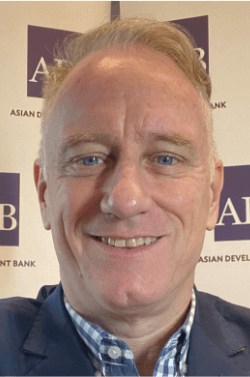
Jamie Leather is the Chief of the Transport Sector Group at the Asian Development Bank.
Mr. Leather has 30 years of experience in transport, working internationally with development organizations, governments, private sector, and research institutions.
Mr. Leather leads ADB's transport sector operations and overseas the strategic direction of ADB's knowledge, technical, and financial support to its developing member countries, private sector clients, and partners.
Mr. Leather obtained his master of science in transport planning and engineering from the Institute of Transport Studies, Leeds University, UK.
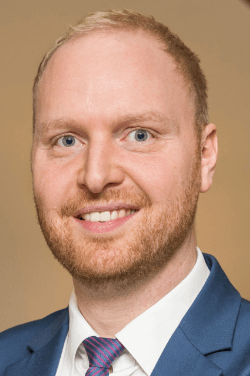
Josef Hargrave is the Global Foresight Leader at global design, engineering and consulting firm Arup.
He has a background in biology, innovation management, and corporate foresight. He has spent the last 9 years working at Arup.
As Arup’s Global Foresight Leader, he is responsible for the delivery of foresight services and projects globally, working across Arup’s Americas, Australasia, East Asia, Europe and UKIMEA regions. Josef’s clients and collaborators include Arup leadership teams as well as external organisations from a broad range of sectors.
Josef leads a multi-disciplinary team of designers and consultants that specialize in strategy, innovation, thought leadership, and vision making around the future of the built environment. This includes the analysis of trends and plausible futures, the mapping of implication for strategy and design, the identification of new opportunities for product and service innovation, and the development of strategic insights. Current focal areas include Arup's cities strategy, digital transformation program, and sustainable development plan.
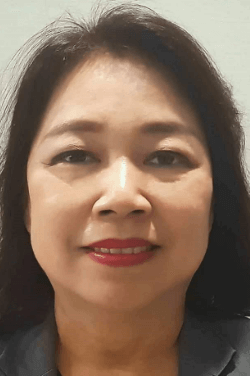
Esther Koisin is the Director of the Department of International Taxation, Inland Revenue Board of Malaysia.
She has been involved in international taxation for many years and has served as Deputy Director of the Treaty Division, Director of MAP Division and Director of International Affairs and Exchange of Information Division. She has also served as the Deputy Director of the International Training Centre of the Malaysian Tax Academy.
She represents Malaysia in various Organisation for Economic Co-operation and Development (OECD) working parties including Working Party 10, Working Party 11, and the Automatic Peer Review Group.
She also represented Malaysia as a member of the OECD Global Forum Peer Review Group, AEOI Group, and is a current assessor for the Global Forum. She also works closely with the Study Group on Asian Tax Administration and Research and the Commonwealth Association of Tax Administrators especially in capacity building and international cooperation.
She has a doctorate degree from Universiti Utara Malaysia, economics degree from Universiti Malaya, and law degree from University of London.
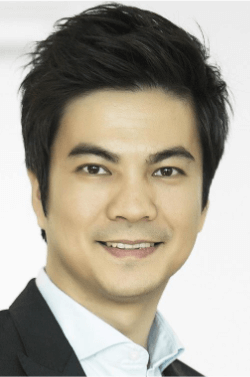
James Dong is the CEO of Lazada Vietnam. He joined the company in 2018 as the CEO of Lazada Thailand, where he led the launch of social commerce platform, Youpik.
Prior to Lazada, he was the Head of Globalisation Strategy and Corporate Development at Alibaba Group and Business Assistant to Group CEO, Daniel Zhang. James drove the company’s e-commerce globalization strategy and portfolio management as well as coordinated collaboration between Alibaba and its top 10 global partners.
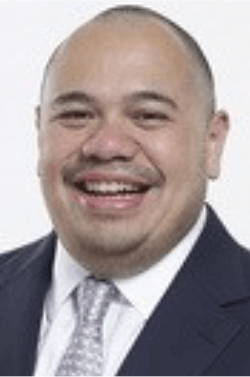
Pandu Sjahrir is Chairman of Sea Indonesia. He is also the Managing Partner of Indies Capital Partners, a leading asset manager in Indonesia, Director of Toba Bara Sejahtra, a publicly listed energy enterprise in Indonesia, as well as board member of both Gojek and the Indonesia Stock Exchange.
A leading investor in the seed and early growth stages in Southeast Asia, Pandu also volunteers in multiple organisations to promote entrepreneurship and education in Southeast Asia.
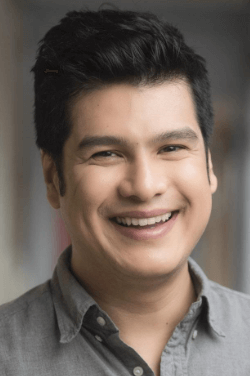
Chope CEO Arrif Ziaudeen is a born and bred Singaporean on a mission to give diners in Asia the best possible restaurant dining experience. Prior to founding Chope, Arrif worked in management consulting and private equity.
Over the years, Arrif’s vision for Chope has steadily transformed the face of the food and beverage sector across the region, by introducing technology as efficiency drivers for what has been a very traditionally run industry, one restaurant at a time.
A big believer in the notion that "a rising tide lifts all boats," Arrif is also a committed advocate for the region’s tech and startup space.
The father of two regularly volunteers his time to mentorship and contributes at industry events across the region.
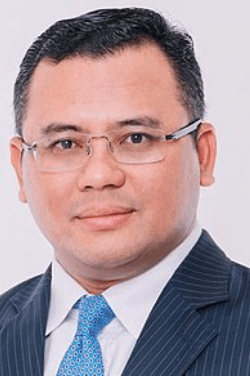
Amirudin Shari is a Malaysian politician currently serving as the Menteri Besar (Chief Minister of State) of Selangor and the State Assemblyman for Sungai Tua.
Before assuming this role, he was the Selangor State Executive Councillor and Vice-Chairman of Selangor Sports Council. He has been actively involved with state programs for youths and sports, as well as promoting the arts and culture, throughout his political career.

Ilaria Chan is the Group Advisor on Social Impact Investments for Grab, focusing on advancing diplomacy, thought leadership, and social impact reach.
Before this role, she served as a corporate finance executive and helped drive Grab’s historical $5-billion capital raised from Series H round, the largest in the history of Southeast Asia.
Ilaria was formerly an executive director at Goldman Sachs, focusing on Asia equities. She is currently a global speaker, private investor, and serves on the boards of non-profits Care for Children and EmancipAction. She is also an operating advisor to Owl Ventures, an advisory committee member to GlobalSF’s Women Empowerment Initiative, and serves on the advisory board of British real estate development firm Kinrise.
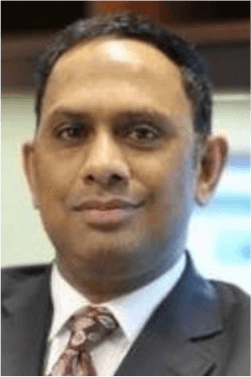
Srinivas Sampath is an infrastructure and investment banking executive with significant experience in structuring and developing infrastructure assets in emerging markets.
He has over 25 years’ experience in project/infrastructure finance and public–private partnerships and has advised public and private sector clients in over 40 countries. He started the Asian Development Bank's Public–Private Partnership (PPP) transaction advisory business in 2011, and later became one of the founding members of the Office of PPP at ADB in 2014.
He now leads ADB's work in the urban infrastructure and water sector in the Southeast Asia Department. He obtained his doctorate degree in Economic Planning Studies from University College London.

Joris van Etten is a Senior Urban Development Specialist at the Asian Development Bank (ADB) and is based in Indonesia.
He has been working on urbanization issues for almost 20 years, working with governments on addressing technical, institutional and financial challenges to create livable cities.
Prior to ADB, Joris worked to support sustainable urban development with GIZ, UN-HABITAT, the European Commission, and the Institute for Housing and Urban Development Studies.
He holds a bachelor degree in Public Administration and Public Policy, and a master’s degree in International Public Administration and Public Policy specializing in Urban Management in Developing Countries both from the University of Twente, the Netherlands.
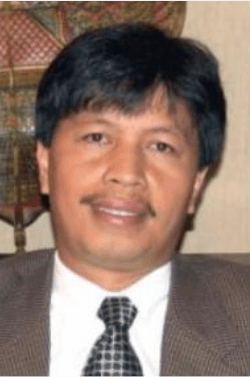
Eddy Satriya dedicated most of his career in information and communication technology (ICT), energy, utility, infrastructure, and bureaucratic reform for more than 25 years.
He was previously the Deputy Assistant for ICT and Utility and the Division Head for International Cooperation at the Indonesian Coordinating Ministry for Economic Affairs. He was also the Deputy Director for Development and Utilization of Energy at the Directorate of Energy, Telecommunication and Informatics of BAPPENAS, Indonesia’s National Development Planning Agency.
He has authored numerous research, articles, and columns about various topics, including ICT, new economy, infrastructure issues, and reform agendas.
He obtained his master's degree in economics from the University of Conneticut in the United States.
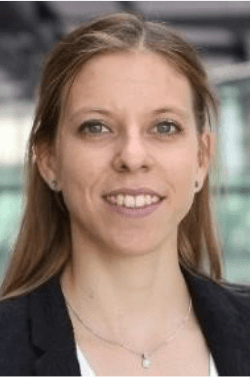
Nathalie Duchemin heads Strategy and Business Development across South East Asia & Oceania for Samsung Electronics' Mobile Enterprise division. She drives the expansion of Samsung's world class business solutions while establishing thought leadership and building new growth areas for the enterprise mobility business. She works closely with local partners and business representatives to advocate for mobile-first solutions that drive meaningful digital transformation in Southeast Asia and Oceania countries.
Prior to joining Samsung, Nathalie worked for major management consulting firms such as Capgemini and EY Consulting. Nathalie brings with her an extensive experience in helping organizations create business values through digital transformation and innovation.
She holds an MBA from the ESSEC Business School, France and a diploma in finance from University of Mannheim, Germany.

Susann Roth leads the Asian Development Bank's (ADB) knowledge management and innovation plan and heads its knowledge advisory service center.
She developed ADB’s first futures and foresight program and has designed ADB’s first technology innovation challenge.
Before this role, Susann co-led the preparation of ADB’s new Operational Plan for Health. She also managed several ADB trust funds, which piloted innovative health sector interventions for regional health security and pandemic preparedness.
Susann launched the first ADB health bond, developed a digital health flagship program and championed health impact assessment across sectors. Susann also led the ADB-UNDP-ESCAP partnership during the preparation of the SDGs.
She joined ADB in 2009 as Social Development Specialist in Central and West Asia, where she worked on social development issues across all sectors.
Susann, a German national, holds a medical doctor degree and a PhD in medical science from the University of Heidelberg in Germany, and a master of public health and policy degree from the University of the Philippines.
She has been trained in transplant and general surgery, and emergency medicine in Germany and the US (Baylor College, Duke University, University of Washington, and University of Heidelberg) and is board certified in emergency medicine.
She also attended a fellowship program in dermatology and tropical medicine in the Philippines and joined post-graduate courses in adult medical education and didactics, which she applied to support the reform of Germany’s medical curriculum at the University of Heidelberg.
She has worked in public and private sector before joining ADB, where she led transformation projects, and she served as Adjunct Professor at LKY School of Public Policy in Singapore from 2016 to 2018.
The World Health Organization invited Susann to their external technical advisory group for innovation and digital health in 2019 for a term of 2 years.
She is trained in futures strategic thinking and foresight techniques, and in change and knowledge management.
LinkedIn: https://ph.linkedin.com/pub/susann-dr-roth/15/29a/940
Twitter: https://twitter.com/adb_susannr
Blog: https://blogs.adb.org/author/susann-roth

Wendy Leong, Mobiva CEO, is a serial entrepreneur and an innovator with more than 20 years of product design and development experience in software communications technologies.
She co-founded her first company in 1998 and has been developing communications solutions for clients in ASEAN and the Middle East.
In 2019, she founded Mobiva, a technology startup that harnesses the power of mobility to reduce the impact of disasters with a cloud-based incident and emergency management command system. Mobiva is one of the winners for the Asian Development Bank's #DigitalAgainstCOVID-19 hackathon for its “Work From Anywhere” approach using a combination of data capture, seamless data sharing, and data analytics in real time.
Wendy is equally passionate about using digital technologies to solve real-world problems today. She is a strong advocate for women in technology and hopes to inspire more women to become technology innovators.
She spent her undergraduate years in Melbourne, Australia completing her Electrical Engineering degree from Monash University and is an alumni of Manchester Business School.
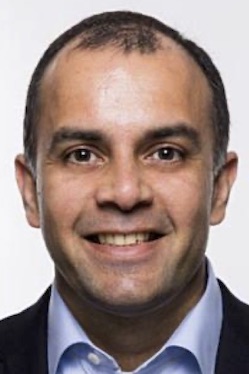
Clarence Barboza is the Director for Cisco’s Public Sector business in the Asia-Pacific, Japan and the People's Republic of China region. He assumed this role in March 2019.
Clarence is primarily responsible for Cisco’s sales and business development efforts with the government, education, health, transport, and utilities sectors.
Prior to this, Clarence was responsible for driving Cisco’s business with global and regional channel partners and developing this key route-to-market within the Asia-Pacific region.
Previously, he was instrumental in leading the integration of the Linksys Small Business sales team into Cisco APJ, creating the APJ Small Business (SMB) Sales team and developing and driving distribution and channel partner programs to nurture existing partner relationships and drive business growth across all market segments and technology/solution areas.
Clarence joined Cisco as a founding member of Cisco’s Asia Pacific Commercial Sales Development team and helped Cisco drive greater technology adoption for commercial/mid-market customers while
enabling partners to improve their profitability with Cisco.
Prior to joining Cisco, Clarence held a leadership role at Dell, leading the home and small and medium business segments across India and South Asia regions.
Clarence holds an MBA from Loyola University, Chicago and currently lives in Singapore with his wife and two young children.

Colton Hubbard is an international development professional with more than 12 years of experience in youth and community development.
He joined Plan International USA in 2020 as a Technical Advisor for Youth and Economic Empowerment.
Prior to joining Plan, Colton served as Program Director for the International Youth Foundation, where he oversaw a complex portfolio of youth economic and social development programming across North and Sub-Saharan Africa, the Middle East and Asia, while managing diverse relationships with local stakeholders, and providing in-house technical consulting for projects across the organization.
Colton is an experienced trainer and has conducted a variety of workshops for an array of clients on behavioral skills instruction, market systems development approaches and Positive Youth Development programming.
Colton’s technical focus areas include Positive Youth Development theory and approaches, monitoring, evaluation and learning, youth entrepreneurship models, socio-emotional learning, and market systems development.
Colton served as a Peace Corps Volunteer from 2006 to 2008 in the Tagant region of Mauritania, working in agricultural and community development. He holds a master’s in public administration from Indiana University, an MM in music composition from Cincinnati Conservatory, and a bachelor's degree in music from Ithaca College.
He speaks French and Mauritanian Arabic.

Meloney C. Lindberg is Asia Foundation’s Country Representative in Cambodia.
She oversees a diverse portfolio of projects including improving the capacity of knowledge sector institutions to undertake quality research to inform public policy analysis and dialogue; engaging with private waste collection firms and local stakeholders to test interventions to increase accountability and responsiveness in municipal solid waste collection and management; and works at a regional level to co-lead an ASEAN-wide digital literacy program for underemployed youth and micro and small entrepreneurs.
Her women’s empowerment portfolio includes projects that advance women’s economic opportunities through skill development programs; improving women’s safety and security by building government capacity to deliver legal services to survivors of gender-based violence, and conducting public safety audits to highlight women’s urban safety at the subnational level.
Meloney has also served as the Foundation's country representative in Mongolia and as deputy country representative in Sri Lanka, the Philippines, and Afghanistan.
She earned a bachelor’s degree in International Studies from Miami University, and a master’s degree in International and Intercultural Management from the School for International Training, World Learning in Brattleboro, Vermont.

Tenzin Norbhu is Google's Director for Government Affairs and Public Policy in Southeast Asia based in Singapore.
Prior to Google, Tenzin was Director for Connectivity and Access Policy in Facebook for Asia Pacific and before that, worked as ICT Policy Advisor in the World Bank Group in several countries across Africa, East and South Asia. Her work focused on ICT sector reforms, broadband policy regulatory and investment issues, transformative use of ICT for public sector reforms, and ICT industry development.
Before the World Bank, Tenzin worked for the Royal Government of Bhutan in the communications sector in telecommunications operations, policy and planning and as head of the telecommunications regulatory agency.

Carolyn Dedolph-Cabrera has a wealth of experience in communications, knowledge management, and change management at Asian Development Bank (ADB).
Her current project is pioneering a Digital Fitness Program for employees as a part of the Digital Innovation Sandbox.
Prior to ADB, she worked at the International Rice Research Instiute as a science editor and writer.
Her interests include hiking, fitness, and green living.

Sumitra Pasupathy has over 25 years of experience in initiating, managing, and leading innovation work globally in the creative, education, and social impact sector.
With her skills from the private sector and startup social impact environment, Sumitra is now channelling her efforts through her role in Ashoka by mobilizing a world that embraces change making. This spans from inspiring young people with change-making skillsets to building change-making economies, including private and public sector participation.
She has worked with diverse teams across different sectoral, geographic locations, leadership teams and board positions.
She has previous experience at Random House UK, Bertelsmann AG, Procter & Gamble, and Kraft. This included work in new venture creation, innovative product development, growth programs (organic and acquisitive), in-depth market research, and marketing; in Europe, US, and most recently Asia.
She has also worked across media, education, and consumer goods sectors, and across private and public sectors.
Most recently, she co-founded an international award-winning independent non-profit citizen sector organization, Playeum, in Singapore to inspire creativity in children. Playeum's vision is to raise children’s voice through play and creativity, to ultimately build a future for young adults filled with empathy, leadership, collaborative, and creative skills.

Yang Mee Eng worked in private and government sectors for over 26 years.
She was most recently the Senior Vice-President at Alphacap, where she assisted SMEs and led the development and execution of Bloconomic Expo 2019, a platform aimed at creating a vast network of blockchain entrepreneurs and developers in the fast-evolving blockchain sector.
Prior to that, she was the CEO of Gameview, the largest mobile game publisher in Malaysia, where she oversaw more than 50 staff members in offices in the People's Republic of China, Malaysia, and Thailand.
Before moving to the private sector, Yang spent 19 years working as the Business Development Manager at Malaysia Digital Economy Corporation, where she sought to build Malaysia as a creative economy hub and led the implementation of One Source Multi Usage for cross-platform business models to fully tap into the potential of locally produced content.
Yang also led the Digital Media sector foresight studies and created Malaysia’s creative industry forecast for 2019–2050 under Mega Science 3.0 project with Academy Science of Malaysia.
Aside from her professional work, she’s also the Co-Founder and President of the Spina Association of Malaysia as well as the President of World Game Blockchain Association.
Yang is part of the international advisory panel for the Malaysian Communications and Multimedia Commission, University Tenaga National, and Infrastructure University Kuala Lumpur.
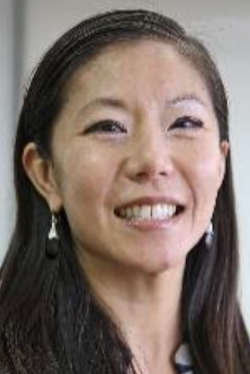
Monique Viengkhou is the Asia Pacific and Japan Lead for Amazon Web Services (AWS) Institute.
She has over 20 years of international experience in formulating, structuring, and executing marketing and business development strategies with an emphasis on emerging economies, particularly the People's Republic of China and ASEAN.
Prior to joining AWS, Monique worked at Hewlett-Packard on a range of programs from working with governments and industry to foster the development and adoption of international, consensus-driven, and interoperable standards to creating new business segments and new country go-to-market models to designing political risk assessment and mitigation strategies.
Her passion plays out in the confluence of education, technology, business, and how the combination can contribute to making the world better.
Aside from HP, she has worked for Massachusetts Institute of Technology, US Department of State, and the Hong Kong Government.
Monique was a Fulbright Fellow and holds a master's degree in business administration from the Johnson Graduate School of Business at Cornell University. She also holds a bachelor's degree in politics and society as well as in comparative culture, with a minor in peace and conflict studies, magna cum laude, from University of California, Irvine.
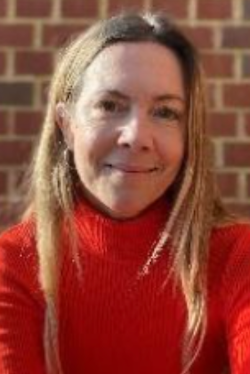
Caroline Mulligan is Senior Manager for Government Transformation at Amazon Web Services (AWS).
She joined AWS in 2019 to form a new digital team helping governments with their digital transformation through open source technology and shared best practices.
She went on to launch Open Government Solutions, which showcases open source and public resources published by government agencies and other public sector organizations around the world. Reusing what others have found to work enables governments to realize the benefits of open-source solutions, such as increased agility and innovation, reduced costs, and improved efficiency.
Caroline also established the Executive Education Course in Digital Transformation as an international virtual course with renowned speakers, attended by hundreds of public sector leaders around the world in 2020.
She previously worked in the UK Government’s Cabinet Office as Head of Digital (Race Disparity Unit) and Digital Marketplace Service Manager (Government Digital Service).
In the private sector, she held a variety of roles which included Head of Music Product for Vodafone Global, Director of Technology at Sony Pictures, and Director of Product in a UK crowdfunding startup.
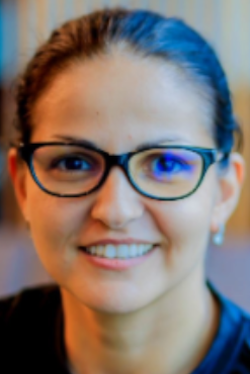
Marija Ralic leads Google.org APAC, the data-driven, human-focused philanthropic arm of Google. Marija joined Google in 2019 where she manages Google’s philanthropic work across the Asia-Pacific region to support innovative nonprofits using technology to tackle complex global challenges.
She works with teams across the regions to bring the best of Google to help solve some of humanity’s biggest challenge—combining funding, innovation, and technical expertise to support underserved communities and provide opportunity for everyone.
She brings years of experience in driving regional planning and community investments, AI for Social Impact, the management of skills in community projects, which focus on making digital literacy and computer science education accessible to all young people.
Before Google, Marija served as a Regional Program Manager overseeing the philanthropic programs at Microsoft Philanthropies across 17 countries in the Asia Pacific and 20 countries in Central and Eastern Europe.
Before her corporate philanthropy journey, Marija spent 5 years in AIESEC Serbia, the world’s largest youth-run nonprofit which focuses on developing the leadership potential of young people through experiential learning, volunteer experiences, and professional internships.
She served AIESEC in various functions, including as president of the AIESEC chapter in Serbia and vice-president of external relations.

Warren Smith has been responsible for ensuring that the UK government’s Digital Marketplace directly supports digital, data and technology reforms.
He has led the introduction of user-centered, design-led, data-driven, and open approaches to public contracting—the foundation of the step-change in procurement envisioned in the UK Government Transformation Strategy.
This has dramatically diversified the government’s digital supply chains: there are over 7,000 suppliers available through the Digital Marketplace; over 90% are small and medium-sized enterprises (SMEs); and SMEs received over £1.09 billion of UK public spend in 2020.
Since January 2018, Warren has led the UK Government Digital Service Global Digital Marketplace Programme to help governments in emerging economies make their procurement more transparent, and to boost their domestic digital sectors.
He also leads a number of multilateral organizations’ thematic groups, focusing on mainstreaming internet-era approaches to digital public procurement: for the Organisation for Economic Co-operation and Development Working Party of Senior Digital Government Officials; and the United Nations' International Telecommunication Union United for Smart Sustainable Cities.
Warren has over 25 years experience in procurement and supply chain management, across the private and public sectors, leading transformative projects to introduce new ways of thinking and working in public procurement and contracting.

Thomas Abell is the Chief of Asian Development Bank's (ADB) Digital Technology for Development Unit, which promotes the effective use of digital technology across ADB programs to improve development impact. His team works with ADB member countries in supporting the transition to the digital economy and provides assistance across many areas, including eGovernment, tech startup ecosystems, technology policy, and tech industry partnerships.
Thomas has over 30 years of professional experience in digital technology, including technology policy and strategy, software development, and systems architecture. During his 10+ years of experience in international development, he has worked extensively across Asia, Africa and Latin America, working with governments, development organizations, NGOs and corporations.
He has authored many publications on technology innovation in development, focused mainly on education, financial inclusion and agriculture.
Thomas has master’s degrees in engineering and management and a bachelor's in engineering from the Massachusetts Institute of Technology.

Fraser Thompson is passionate about using economics to help address major societal challenges, with a particular focus on sustainability, the future of work, and accelerating economic development.
Some of the work that Fraser has led at AlphaBeta includes sustainability, future of work and economic development.
Prior to AlphaBeta, Fraser was a consultant at McKinsey & Company for almost 9 years, working with a range of governments and leading corporates in the Middle East, Africa, Europe, the United States, and in Indonesia. During this time, Fraser was a Senior Fellow at McKinsey Global Institute (MGI), McKinsey’s business and economics research arm, where he led work on themes such as productivity and growth, resource efficiency, climate change, foreign investment attraction, economic development in resource-rich countries, and obesity.
Fraser received a doctorate and master's degree in economics from the University of Oxford, where he studied as a Rhodes scholar. At Oxford, Fraser was the President of the Oxford University Athletic Club and selected as the Athlete of the Decade. He has also represented Australia at an international level in cross country.
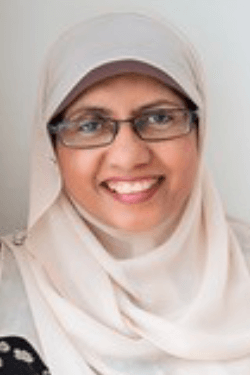
Dr. Fazilah Shaik Allaudin has held various leadership roles in the Ministry of Health and in hospitals over the last 20 years.
She has been leading digital health and innovation strategies and collaborations, both locally and internationally. She often represents Malaysia at regional and global platforms in digital health. A significant portion of her career has been focused on policy and strategy for health system transformation agenda and project management, mainly on hospital information systems.
At present, she leads the nationwide EMR project and the national agenda of Lifetime Health Record. She also advanced the digital agenda within the nation’s COVID-19 response. Additionally, she drives policy and regulatory framework development in digital health and innovation.
Dr. Fazilah holds an M.D. and an MBA in Healthcare Administration. She is professionally certified in Enterprise Architecture (TOGAF 9.0) and in Governance & Management of Enterprise IT (COBIT 5.0).

Dr. Le Quang Lan graduated from the National University of Economics in Vietnam in 1995. He then earned a doctorate degree on economics from the National Trade Institute in Viet Nam in 2003. He also read and obtained his master of law degree in antitrust law and economics from the George Mason University, Virginia, US.
Dr. Lan has a long professional career as regional and multilateral trade negotiator for Viet Nam, including as the Director General-Deputy Permanent Representative of Viet Nam to the World Trade Organization from 2011 to 2015 and the SEOM Lead of Viet Nam in ASEAN from 2008 to 2010. He also served as Deputy Director General of the National Competition Commission from 2018 to 2019.
He first joined the ASEAN Secretariat in 2015 as Assistant Director for Trade Facilitation and rejoined the ASEAN Secretariat in 2019 as Assistant Director for ICT and Tourism.
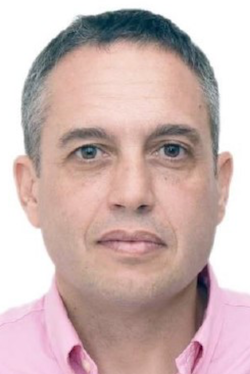
Alfredo Perdiguero has worked in Southeast Asia for the last 20 years and has broad exposure, deep knowledge, and extensive work with the Asian Development Bank (ADB) on regional cooperation and integration issues in the Association of Southeast Asian Nations (ASEAN), the Brunei Darussalam-Indonesia-Malaysia-Philippines East ASEAN Growth Area (BIMP-EAGA), the Indonesia-Malaysia-Thailand Growth Triangle (IMT-GT), and the Greater Mekong Subregion (GMS).
Mr. Perdiguero also acts as the administrator of the ASEAN Infrastructure Fund, the largest initiative of ASEAN in its history based on the member countries’ funding contributions.
Prior to joining ADB, Mr. Perdiguero was an economist in the European Union Delegation in South Africa. He also worked as a trade specialist in the Spanish Embassy in Egypt and in several NGOs in Latin America.
He has been a lecturer in universities in Madrid, Spain, and the Ateneo Graduate School of European Studies, Manila, Philippines.
His career spans the private sector, the government and the academe.
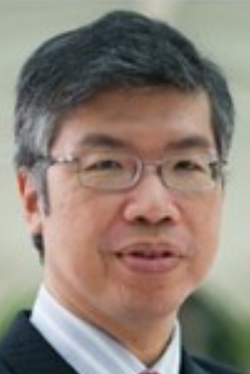
Thiam Hee Ng is Principal Economist at the Southeast Asia Department of the Asian Development Bank (ADB), where he coordinates the economic and policy research in Southeast Asia.
Before joining ADB, he worked at the United Nations Industrial Development Organization and Bank Negara Malaysia.
He was awarded his PhD and MSc in economics from the University of Wisconsin-Madison in the US and his bachelor's degree in economics from the University of Cambridge in the UK. He is a CFA charterholder since 1999.
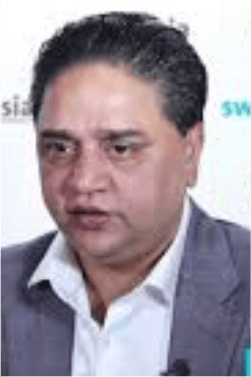
Qazi Sabir holds an MSc in chemical engineering from Ryerson University, Toronto, with majors in energy and environment and air pollution and control.
He currently works at Iqbal Hamid Trust as Project Manager for EU SWITCH-Asia-Implementation of Resource and Energy Efficient Technologies in the Sugar Sector of Pakistan.
He brings over 19 years’ experience in developing and managing several projects, contributing to increased uptake of Sustainable Consumption and Production technologies and practices by different industrial sectors of Pakistan.
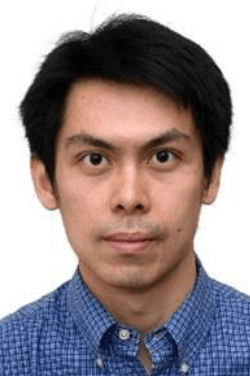
Aekapol Chongvilaivan is an Economist (Public Finance) at the Southeast Asia Department of the Asian Development Bank (ADB).
He has more than 10 years of professional experience in international organizations and the academe.
Through ADB’s lending and technical assistance, his current role supports governments in Southeast Asia in public finance management policy and reforms, including tax reforms, medium-term fiscal planning and budgeting, and public debt management.
He worked as Country Economist for the Philippines in ADB's Philippines Country Office in 2016–2018.
He joined ADB in 2013 through the Young Professionals Program and had experience in ADB’s Southeast Asia Department, Pacific Department, and Strategy and Policy Department.
Prior to ADB, he was Fellow and Coordinator of the Regional Economic Studies Programme at the Institute of Southeast Asian Studies in Singapore.
Mr. Aekapol holds a PhD in economics from the National University of Singapore.
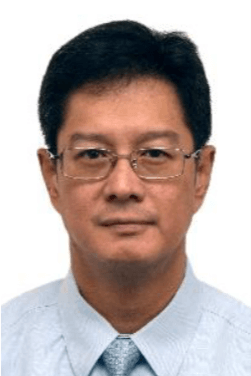
Jose Antonio Tan III is the Director of the Public Management, Financial Sector, and Trade Division of the Southeast Asia Department of the Asian Development Bank (ADB).
He joined ADB in January 2008 as an Economist (Public Finance) in the Central and West Asia Department, and was promoted to Senior Economist (Public Finance) in February 2011. In this position, he led the processing and implementation of programs and technical assistance projects on several sectors that included working on issues about budgeting, taxation, private sector development, financial reforms, and crisis recovery support.
He transferred to the Office of the Vice-President (Finance and Administration) as Senior Advisor to the Vice-President in September 2011, and later moved
to the Office of the Vice-President (Knowledge Management and Sustainable Development). In this role, Mr. Tan has provided strong support and advice to the Vice-President on the full range of operational and administrative matters, including advising on strategies, policies and business processes, and assisting in the development of initiatives in the areas of knowledge management and sustainable development. His blend of policy and operations experience as well as his strong research background, broad perspective of ADB operations gained from his stint in the Offices of the Vice-President. He was later appointed as Advisor at the Independent Evaluation Department.
Prior to joining ADB, he had worked with the Government of the Philippines as Deputy Treasurer of the Philippines and officer at the Bangko Sentral ng Pilipinas.
He obtained his PhD in economics from the University of the Philippines and has done post-doctoral research as a visiting scholar at Stanford University, and the Federal Reserve Banks of San Francisco, New York and Boston.
He was also a Humphrey Fellow for Finance and Economics at Boston University in 1998-1999. His research interests are in the areas of monetary and fiscal policies and reform, public finance, econometric modeling, and financial economics.
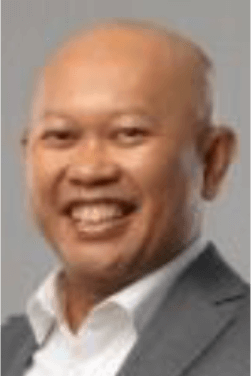
Darwin Trisna Djajawinata is Director for Operations and Finance at PT Sarana Multi Infrastruktur (Persero, SMI). He leads and manages the company's operations from accounting, treasury and investor relations, asset management and monitoring, to equity investment, general support and procurement, and IT.
In the last 5 months, he had raised more than $1.2 billion in funding to support the company's investment and financing programs, while also managing the company's investment portfolios. He also initiated the setup of a blended finance platform to support the SDG Indonesia One program to meet the country's Sustainable Development Goals (SDG).
Prior to the position, he was Director for Project Development and Sustainable Finance (August 2014-June 2020), managing the company's portfolio for project preparation and assisting project owners and investment entities, both public or private, to access funding or project opportunities through various advisory and arranger activities.
He initiated the setup of the Sustainable Finance Unit that promotes renewable energy, energy efficiency, and climate change-related investments in Indonesia.
On sustainable finance initiatives, he worked toward getting an accreditation from Green Climate Fund (GCF) for SMI, making the company the first Southeast Asian institution accredited by GCF.
Working together with multilateral and bilateral institutions he promoted investments in green projects including, renewable energy (hydro, solar and geothermal, and biomass), urban transport, water, among others.
He currently manages more than 20 renewable energy projects and four geothermal exploration and exploitation financing programs.
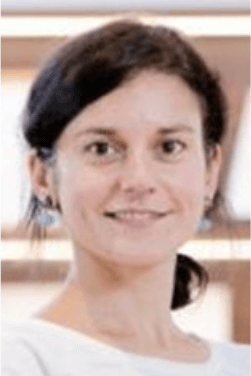
Giulia Ajmone Marsan is the Director of Strategy and Partnership of the Economic Research Institute for ASEAN and East Asia (ERIA).
She works closely with ASEAN policy makers as well as regional and global organizations to support the ASEAN process of socio-economic integration.
Giulia supports ERIA’s activities in several areas including science, technology and innovation policy; MSME, entrepreneurship, and startup creation; skills and the future of work; and the Fourth Industrial Revolution. She recently launched a new stream of work within ERIA on ASEAN women in the digital economy.
Before joining ERIA, Giulia worked as an Innovation Economist at the Organisation for Economic Co-operation and Development (OECD), where she contributed to the activities of several directorates, such as the Centre for Entrepreneurship, SMEs, Regions, and Cities, and the Directorate for Science, Technology, and Innovation. She has worked on several international projects to support innovation ecosystems at the national and regional/local levels, covering countries in Europe, North and Latin America, Africa, and Asia.
Giulia holds bachelor's and master's degrees in applied mathematics from the Polytechnic School of Turin, Italy and a PhD in economics and complex systems from Ecole des Hautes Etudes en Sciences Sociales, Paris, France and the IMT Institute for Advanced Studies, Lucca, Italy.
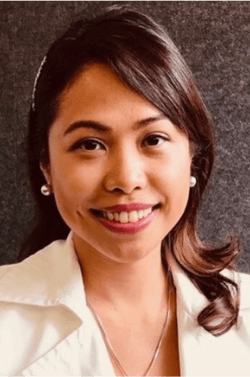
Loraine Gatlabayan is a Senior Adviser on Sustainable Consumption and Production (SCP) at the EU SWITCH-Asia SCP Facility.
For the past 16 years she has worked on international and national projects focusing on environmental and sustainable development issues in Asia, with a focus on SCP and resource efficiency, biosafety, access rights in environmental decision-making, transparency and accountability, and climate change
She did consultancy work for the Asian Development Bank, the United Nations Environment–Regional Office in Asia and Pacific under the EU SWITCH-Asia Regional Support Component based in Bangkok, Thailand, and the Asia-Pacific Roundtable on Sustainable Consumption and Production.
Loraine also worked at the Climate Change Commission Philippines as Division Chief for Research and Knowledge Management and as Director of the Center for Social Policy in the Ateneo School of Government at the Ateneo de Manila University in the Philippines.
She holds a master's degree on the politics of sustainable development from Keele University, UK and a bachelor's degree on European studies, with business management track, from the Ateneo de Manila University, Manila, Philippines.

Mirko Zuerker has supported SEED since 2009 and has in the last 6 months led the implementation of SEED’s Green Recovery Ecosystem Builder Programme for Southeast Asia and Africa. SEED is a global initiative promoting entrepreneurship for sustainable development.
Mirko has developed and enhanced SEED's global incubator and accelerator program, positioning its awards and support scheme as the leading schemes in the field of eco-inclusive enterprise development.
He helped connect SEED with donors, investors, foundations, and intermediaries, making SEED a key player in the space.
As lead of SEED's Deal Ready Programme, he created matches between financers and multiple enterprises and with the creation of the SEED BDS+ Programme, he built a training mechanism to enhance the quality of business development service providers across Africa.
At SEED, Mirko coined the term toolification as he developed several business incubation and acceleration toolkits focusing on topics such as eco-inclusive innovation, business modelling, organizational development, market research, and lean-startup.
Before joining SEED, Mirko worked as a freelance journalist for multiple media outlets and conducted policy analysis in his work at the Press and Information Office of the Federal Government of Germany and at the Friedrich-Ebert-Foundation in the People's Republic of China.
He studied political science, economics, and Chinese studies in Munich, Shanghai, and Madrid and completed a post-graduate program, focusing on adult education and business ethics at the Munich School of Philosophy.
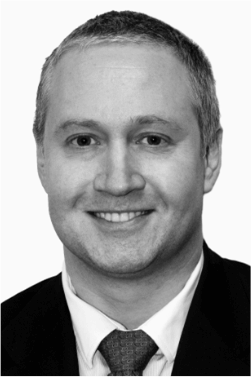
Oliver Greenfield leads the Green Economy Coalition, the world’s largest multi-stakeholder alliance committed to the transition to green and fair economies. Made up of over 50 organizations, the coalition brings together NGOs, business, research and international bodies who are united by a vision of prosperity for all within the limits of the planet. The coalition’s purpose is to accelerate the transition to green economies by building evidence, tracking the status of the global transition, and convening diverse stakeholders around shared policy goals.
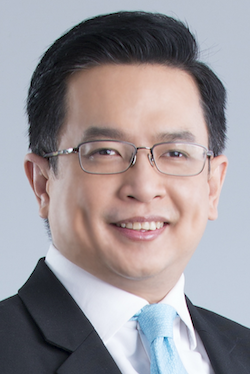
Vinit Visessuvanapoom is the Deputy Director General of the Revenue Department, Thailand.
He has a PhD in economics from the University of Sydney and 20 years of experience in tax administration.
Vinit actively works to enhance Thailand's tax administration system, particularly with regard to compliance enforcement.
He believes that not only is digital transformation key to improve tax administration, but that a taxpayer-centric solution is also vital for tax authorities.
Prior to his post, Vinit was Director of the Human Resources Management Division, Director of the Tax Collection Standards Division, and Director of the Small and Medium Business Tax Administration Division.
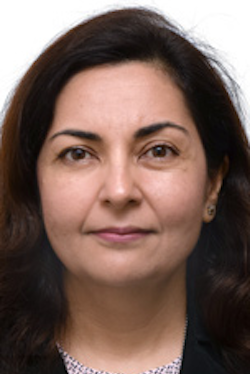
Sunniya Durrani-Jamal is the Country Director for the Asian Development Bank (ADB) in Cambodia.
She manages ADB’s portfolio of approximately $2.02 billion and $40 million in technical assistance and grants, delivered by a team of 47 staff and consultants.
Her main responsibilities include managing relationships with key partners in Cambodia’s development including government, civil society, private sector, international financial institutions, NGOs, bilateral development, and trade agencies.
She is also responsible for the preparation and delivery of ADB’s Country Partnership Strategy based on Cambodia’s development goals as well as regional and international commitments.
Earlier, Ms. Durrani-Jamal served as Senior Advisor to the Vice-President for Operations Group 2 (OG2), at ADB. In this role she provided policy advice, review of operations for ADB’s Board approval, and helped manage internal and external client relationships.
She played a key role in OG2 delivering a $9.2-billion lending and grants program, and $123 million in technical assistance in 28 countries.
Ms. Durrani-Jamal has also worked as a Senior Economist in the Development Effectiveness and Safeguards Unit of ADB’s Private Sector Operations Department. She was responsible for working with investment officers to help ensure the alignment of assistance with ADB's strategic priorities and development objectives, improving and enhancing the monitoring and reporting of development goals, and demonstrating solid economic and social returns of operations.
From 2009 to 2011, Ms. Durrani-Jamal worked as Senior Economist, Human Development, with the World Bank in Jakarta, Indonesia (while on leave from ADB), where she led improvements in the world’s largest school grants program. From 2003 to 2008 she worked as Economist in ADB’s regional departments for South Asia and Southeast Asia leading the design and implementation of public sector projects in education financing, technical and vocational skills development and urban infrastructure.
Before joining ADB, Ms. Durrani-Jamal worked with KPMG Consulting, in Toronto, Canada, where she worked with private and public sector clients to improve the quality and cost-effectiveness of service delivery.
Ms. Durrani-Jamal has a masters in economics (human development) from the University of Sussex, UK, and a MSc in economics (monetary policy) from Quaid-i-Azam University, Pakistan.
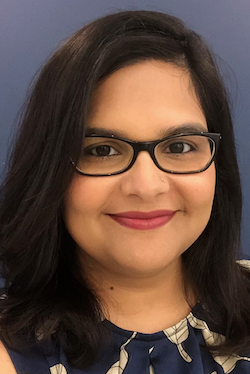
Naeeda Crishna Morgado is an Infrastructure Specialist in Asian Development Bank's (ADB) Southeast Asia Innovation Hub, where she helps design innovative financing instruments for climate-related infrastructure projects.
Naeeda helped set up the ASEAN Catalytic Green Finance Facility (ACGF) and currently manages strategy and financing partnerships, including the design of a dedicated Green Recovery Program with the Green Climate Fund. Naeeda also supports the development of green investment criteria and taxonomies.
Previously, Naeeda worked at the OECD Development Co-operation Directorate in Paris where she lead several flagship OECD reports on blended finance, climate policy, and development finance. In previous roles, Naeeda implemented climate change mitigation programs for governments in the Greater Mekong Subregion, and for infrastructure projects in the UK.
Naeeda has a masters in environmental sustainability from the University of Edinburgh.
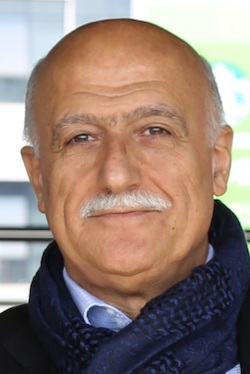
Arab Hoballah has been the Team Leader of EU-SWITCH-Asia’s Sustainable Consumption and Production Facility since October 2017. The facility aims to further encourage and enable stakeholders in Central, South and Southeast Asian countries in developing and delivering policies and actions supporting transformative change for sustainable consumption and production.
Arab served as UNEP Chief of Sustainable Consumption and Production (SCP) from 2005 to 2016, with a focus on lifestyles, cities, and industry. Prior to that, he served in senior positions for 20 years in UNEP/Mediterranean Action Plan and development projects.
He has launched various global initiatives and partnerships related to buildings, cities, tourism, and food. Among his achievements together with his teams: Elevating the SCP agenda at the highest level in the UN and government strategies, establishing the International Resource Panel, adoption of the 10-Year Framework of Programmes for SCP and Sustainable Development Goal 12, and establishing the Mediterranean Commission for Sustainable Development.
A world citizen, Arab is specialized in systemic and prospective analysis. He holds a PhD in economic development and a master's in international relations.

Cosima Stahr is a Sustainable Consumption and Production (SCP) Expert for South Asia for the SWITCH-Asia SCP Facility. She also focuses on housing and buildings, plastics and waste management, and finance.
As a Senior Advisor at adelphi, she has substantial experience in conceptualizing and supervising research and advisory projects on the international and European levels.
As an advisor, project developer, and project leader, she has led various projects in the field of green finance, climate change adaptation, and clean-tech innovations. Her clients include the European Commission, federal ministries, development banks, as well as German and international organizations working in development and environmental management.
Cosima has wide-ranging experience in working with corporations and SMEs, the financial sector, and government institutions across the globe, particularly Europe, South Asia, and Africa.
Before adelphi, she worked for management consulting firm Boston Consulting Group. She also completed several projects for a public policy consultancy in London.
Cosima has a master's degree in international relations and a Licence en Relations Internationales in Geneva, Berlin, and New York. She was a guest lecturer at the Humboldt Universität Berlin and at HSBA Hamburg School of Business Administration on corporate sustainability.
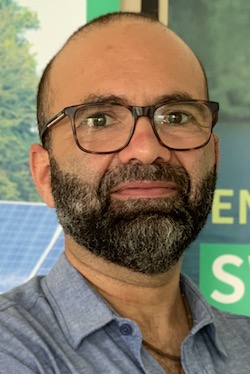
Hugo Agostinho has brought his experience from the private sector as a chemical and industrial engineer working in process engineering, sales, and after-sales into the humanitarian and development sector.
He has extensive experience in leading teams and developing partnerships with local communities, the private sector, non-governmental and governmental stakeholders, in diverse fields such as logistics, water and sanitation, as well as green energies.
He previously worked on a SWITCH-Asia biogas project in Sri Lanka.
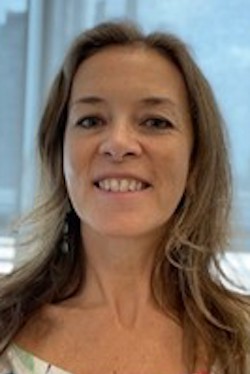
Melanie Kengen started her career working with civil society organisations. She was in charge of institutional co-financing and partnership on projects in Latin American, Africa, and Asia.
In 2007, she joined the European Union Delegation in India where she worked on various aid modalities, such as budget support, grants or technical assistance. Posted in Brussels in 2015, she specialized in blended finance, which at the time was starting to gain momentum but was also relatively new to many development actors and partner countries.
Since then, she has been closely involved in managing three investment facilities funded by the EU: Asia Investment Facility (AIF), Investment Facility for Central Asia (IFCA) and Pacific Facility (IFP).
Under the Asia and Pacific Unit of DG International Partnership (INTPA), from EU Bangkok office, she supports EU delegations in the region in initiating and implementing a portfolio of blended finance projects.
She liaises with EU and regional FIs, main implementers of blended finance projects for the EU. She is involved in the drafting of the EU policy for Asia in preparation for the future investment architecture of the EU for 2021 to 2027.
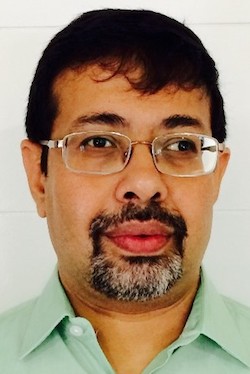
Sanjoy Sanyal is an SME Finance Expert focusing on South Asian and Southeast Asian countries. He works on issues related to technology and innovation and business and finance, especially in the SME context. As Senior Associate at adelphi, he contributes to different projects in the fields of clean tech innovation, energy efficiency, and green finance.
Sanjoy founded Regain Paradise Research Consulting, a boutique clean tech consulting firm. He has been instrumental in helping the New Ventures India program develop a strong network of institutional investors. He has also been able to help early-stage green entrepreneurs raise impact capital.
Sanjoy was part of the management team at SumTotal Systems, a global leader in Talent Management software, where he managed services delivery out of India.
As an entrepreneur, he has co-founded and run Aesthetic Technologies, an e-learning content development company, which had major Indian and international firms as its clients and received venture capital funding from Indian investors.
In addition, Sanjoy has worked at ITC Classic Finance Ltd. and ICICI Ltd. focusing on project finance, asset finance, and credit evaluation.
Sanjoy has a post graduate degree from the Indian Institute of Management, Joka and a bachelor's degree in technology from the Indian Institute of Technology, Kharagpur.
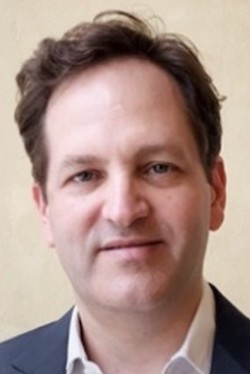
Yossef Zahar is an SEI Affiliated Researcher focused on climate finance and the role of private finance in addressing communities’ mitigation and adaptation challenges in developing Asia Pacific.
Yossef brings more than 15 years of experience in financial markets and broad investment and corporate finance and has served in a variety of roles in international financial institutions as well as an independent advisor.
As Senior Climate Finance Advisor, Yossef has designed and developed several blended finance structures with a regional scope in Asia Pacific through the UN Green Investment Catalyst. He works with financial institutions, development partners, and regulators, to accelerate green finance flows for developing Asia.
Yossef holds a masters in finance from the London Business School (LBS) and has presided over LBS' Carbon Network, as well as serving on its board. He has provided pro bono financial and strategic advice for impact entrepreneurs.
Ensuring that vulnerable communities have access to much-needed finance for green transition and adopting a multi-stakeholder and partnerships approach to ensure gender and social equity are key drivers for Yossef’s work.
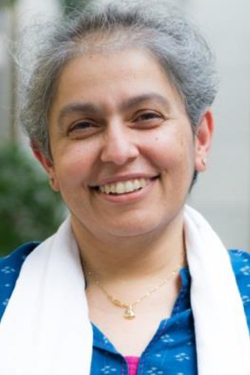
Preety M. Bhandari is the Chief of Climate Change and Disaster Risk Management thematic group and is also serving as the Director for Climate Change and Disaster Risk Management Division of the Sustainable Development and Climate Change Department at the Asian Development Bank (ADB).
She is responsible for providing policy and strategic direction to ADB’s initiatives on climate change and disaster risk management, including mobilizing concessional financing from multilateral funds such as the Climate Investment Funds (CIFs) and the Green Climate Fund (GCF). She also has an oversight on climate financing from ADB’s own resources including through investments in the private sector.
Prior to joining ADB, she headed the Finance, Technology and Capacity Building Program of the secretariat of the UN Framework Convention on Climate Change. She led the support to the international negotiations on climate finance, which culminated in the launch of GCF and the Standing Committee on Finance.
She coordinated the establishment of the Technology Mechanism under the Convention, which includes the Climate Technology Centre and Network.
She has also worked as the Director of the Policy Analysis Division at the Energy and Resources Institute in India.
She has over 33 years of experience in environment, climate change and sustainable development, having worked on projects across Asia, and in multicultural and diverse organizations. She is on the editorial board of Climate Policy and has in the past served as a member of the core group on climate change, established by the Government of India to assess India’s strategy for the UN climate change negotiations.
She has also helped adjudicate for the Climate CoLab at MIT, which mobilizes and harnesses innovative ideas to address the challenge of climate change. She is currently advising initiatives led by the 2050 Pathways Platform, the International Institute for Sustainable Development, the International Institute for Applied Systems Analysis and the International Science Council.

Sara Jane Ahmed currently serves as a Finance Advisor to the Vulnerable Group of 20 Ministers of Finance of the Climate Vulnerable Forum. She is also part of the advisory board of various institutions including the Global Renewables Congress.
She provides advisory support to governments and relevant partners on the energy transition, climate finance, and financial protection strategies. She is a former Energy Finance Analyst with the Institute for Energy Economics and Financial Analysis covering energy transition in Philippines.
She was previously an investment advisor for private equity groups specializing in originating and structuring energy opportunities.
She holds an MS in finance from the Simon Graduate School of Business, University of Rochester.

David Elzinga is part of the Southeast Asia Energy Department and is working on projects in Cambodia, Viet Nam, and Timor Leste.
David has engaged across a range of countries and energy system technologies to support the Asian Development Bank’s (ADB) investments in the energy sector.
Previously at the UN Economic Commission for Europe, David's focus was on the role of fossil fuels in sustainable energy systems and at the International Energy Agency (IEA) was lead author for Energy Technology Perspectives publication. He also led the IEA’s work on electricity system technologies, such as gmart grids.
David has worked in the energy and climate fields for over 20 years, focusing on areas such as technology, policy and analysis in both the private and public sectors. In these roles he developed markets, deployed renewable and energy efficiency technologies and has advised various governments at the local and national levels on energy policy.

Guy Halpern is an analyst at the Organisation for Economic Co-operation and Development (OECD), focused on environmentally sustainable economic development.
Through his work in the OECD Environment Directorate, Guy provides targeted analysis and policy recommendations to governments and industry on sustainability in the extractive sector and small and medium enterprises. He joined the OECD through the Young Professionals Programme, working at the Policy Dialogue on Natural Resource-based Development.
Prior to working at the OECD, Guy held positions in the Canadian Ministry of Natural Resources, the Ontario Power Authority, and the Ontario Energy Board, supported by his experience as an Aga Khan International Development Management Fellow in Tajikistan and environmental governance specialist in Cambodia with the WorldFish Centre.
He has a BES in environment and resource studies from the University of Waterloo, and an MA in global governance from the Balsillie School of Global Governance.
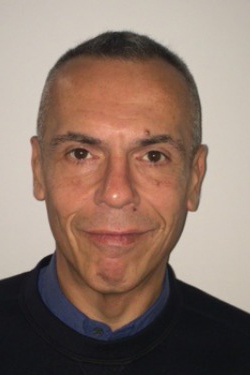
Micha Ramakers is the Deputy Head of Unit for East Asia and the Pacific at the Directorate-General for International Partnerships for Asia, Central Asia, Middle East/Gulf, and Pacific. Previously, he was Deputy Head of Unit for Central Asia, South Asia, and Middle East/Gulf in DG DEVCO.
He started working at the European Commission in 2000, and has held a variety of positions in the field of international cooperation. From 2012 to 2014, he was Head of Cooperation at the EU Delegation to Yemen. From 2010 to 2012, he was Head of Cooperation at the EU Delegation to Afghanistan. From 2008 to 2010, he was senior desk officer for cooperation with Afghanistan. From 2003 to 2006, he headed the governance and civil society section at the EU Delegation to the People's Republic of China. From 1993 to 2000, he was the Assistant Director of the European Human Rights Foundation in Brussels.
Micha is Belgian and holds master's degrees in cultural anthropology and development studies from the Catholic University of Leuven (MSc), international politics from the Université Libre de Bruxelles (MA), and art sciences and archaeology from the Free University of Brussels (MA). In 2009, he completed the Aga Khan University's Expressions of Diversity: A Contemporary Introduction to Muslim Cultures program. He is the author of two books in the field of cultural studies.
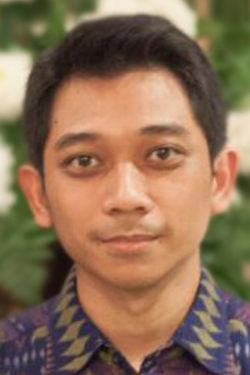
Guntur Sutiyono leads ClimateWorks’ Indonesia team. This team enhances ClimateWorks’ understanding of the region by providing context about policy, politics, and the economic landscape. They are responsible for assessing opportunities and acting as a trusted advisor to stakeholders. Guntur oversees projects in sustainable finance, fiscal policy, energy, and support business development.
Prior to joining ClimateWorks, Guntur worked for the Climate Policy Initiative and the World Bank covering topics including fiscal policy, public finance, climate finance, and environmental economics. Guntur has worked with governments, local universities, and civil society organizations providing analysis and capacity building. He was part of the expert team assisting the Government of Indonesia in establishing the Indonesia Environment Fund.
Guntur is passionate about marine life and rural communities. His interest started in reef economics and coastal communities and has expanded to topics such as gender, energy, forestry, and sustainable economy. Guntur has co-authored several reports on public financial management, fiscal policy, climate finance, land use, and energy policy.
Guntur holds a master’s degree in development and resource economics from the Norwegian University of Life Science.
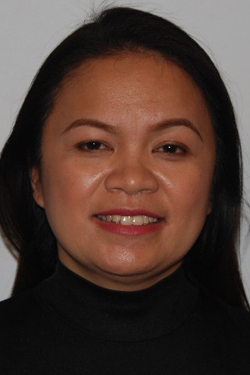
Donna Tabangin is a licensed architect and environmental planner with 23 years of experience in the applied sciences as a faculty of the School of Engineering and Architecture of Saint Louis University (SLU) in Baguio City, Philippines where she taught computer-aided design and geographic information systems in the graduate and undergraduate programs.
She was the officer-in-charge of the Engineering and Urban Planning Research Laboratory. She finished her bachelor’s degree in architecture at Saint Louis University and master’s degree in urban and regional planning at the University of the Philippines School of Urban and Regional Planning, Diliman, Quezon City.
She has obtained advanced professional certifications, such as Geographic Information Systems for Land Evaluation at the School of Earth Sciences in the Catholic University of Leuven, Belgium; Communications and Technology for Disaster Management at the United States Telecommunications Training Institute in Washington DC; and Disaster Risk Reduction and Management at Coventry University, United Kingdom.
In 2016, after serving as a visiting researcher in Technology Entrepreneurship and Design at the University of California Berkeley, she founded the SLU Incubator for Research, Innovation and Business (SIRIB Center). The center has evolved to become a TechHub which includes a Digital Fabrication Laboratory (FabLab) and a technology business incubator. The TechHub is one of the first five tech hubs in the Philippines and its mission is to move technology-intimate researches/projects from the academe as well as from the community towards intellectual property protection, business mentoring, and commercialization. The hub is also involved in providing technical support to SMEs especially on product development, branding, and design.
She went into public service as the City Planning and Development Coordinator of the City Baguio in July 2020. She currently leads the office which is in charge of formulating development plans, comprehensive land use plans, project development and monitoring, urban master planning, and creative design for the city.
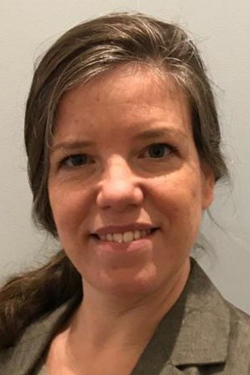
Gemma Verhoeven, Regional Manager at EDFI MC-European Development Finance Institutions Management Company. EDFI is the manager of ElectriFI (short for Electrification Financing Initiative), a blended finance facility funded by the EU providing early-stage catalytic capital to financially sustainable initiatives aimed at increasing or improving access to energy in emerging countries.
After finishing her master’s degree in international financial business in Amsterdam, Gemma started her career in the financial sector, mostly focused on development finance.
At FMO, the Dutch development bank, she worked as Investment Officer in multiple regions and sectors. Her expertise lies in project finance and small-scale infrastructure.
She lived in Bulgaria for 6 years where she started to work remotely among others for ElectriFI. She currently fulfils the role of Regional Manager covering ElectriFI's investments in East Africa and Asia.

Yidan Luo serves as Transport Specialist at the Transport and Communications Division of Asian Development Bank’s (ADB) Southeast Asia Department. She is actively involved in various transport sub-sectors, including railways, roads, and urban transport, and the ongoing Transport Foresight Study.
Prior to joining ADB, Ms. Luo worked as a consultant for both public and private sector in Hong Kong, China, involved in transport infrastructure projects feasibility study, engineering design and implementation in Hong Kong, China and Southeast Asia.
Ms. Luo has a bachelor’s degree in hydraulic engineering from Tsinghua University and a master’s degree in civil and environmental engineering (transportation) from Northwestern University, US.
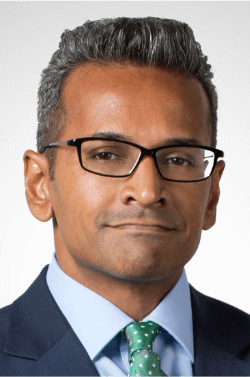
Sri Jegarajah is a CNBC Senior Correspondent based in Singapore. An experienced business and financial markets correspondent who specializes in commodities since 1997, Sri follows global energy developments closely.
Covering financial markets for more than 15 years, Sri has reported on major global events including the 2016 Jakarta attacks, 2008 financial crisis, the Indian Ocean tsunami, and the aftermath of the 2011 tsunami disaster from Tokyo.
He twice received the Bronze Medal in 2009 and 2013 for Best News Correspondent by the New York Festivals International TV & Films Awards.
Prior to joining CNBC in 2005, Sri was an energy reporter for Dow Jones Newswires and Bloomberg News in Singapore.
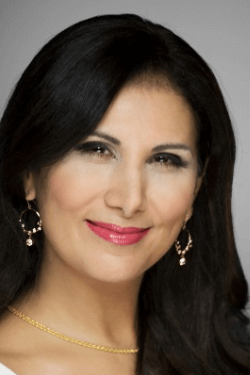
Lisa Oake is the former co-host of CNBC Asia’s top-rated morning program Squawk Box and has 20 years of experience covering global economics, business and politics.
She has conducted thousands of interviews with CEOs, central bank governors, and heads of state.
Lisa was the first journalist to report live from the trading floor of the Singapore Exchange and to interview the President of Indonesia after the devastation of the 2004 tsunami.
